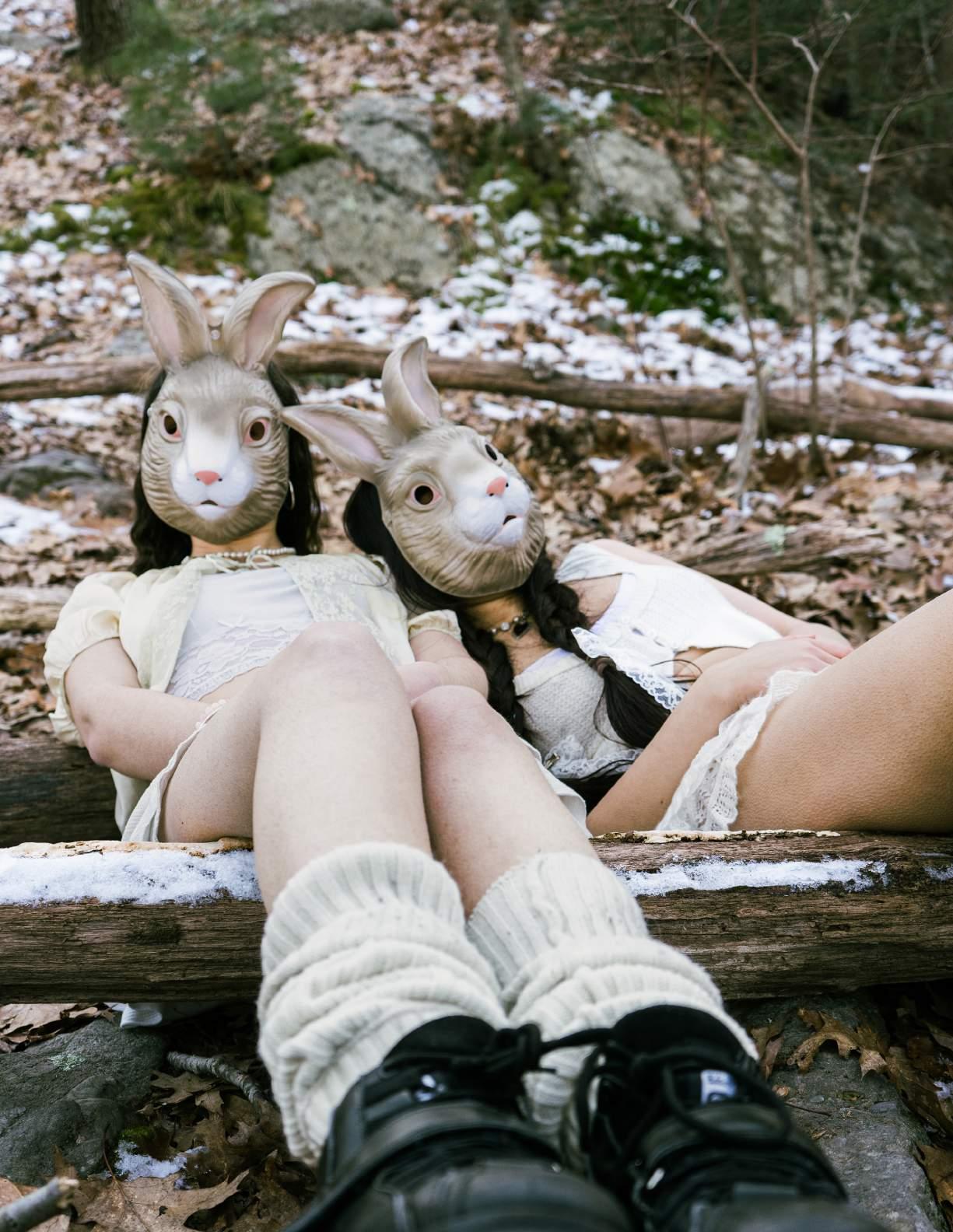
mag volume 21 | issue 1 | MARCH 2024
Your
Recognized in Spring 2012, YOURMAG ’s goal is to promote knowledge of the magazine industry by giving students the opportunity to be responsible for all aspects of a monthly lifestyle publication. With an audience of urban college students in mind, members create content across a broad range of topics and mediums, including style, romance, music, pop culture, personal identity, and experiences. YourMag’s overarching aim is to foster a positive, inclusive community of writers, editors, and artists.

1 | YOURMAG
ISA LUZARRAGA Managing Editor
LILY BROWN Creative Director
EMMA CAHILL Editorial Director
TALIA VYADRO Asst. Editorial Director
ISABELLE GALGANO Asst. Editorial Director
BIANCA LUND Co-Head Stylist
JULIA MAGDZIAK Co-Head Stylist
ANNA BACAL PETERSON Co-Head Stylist
GRIFFIN WILLNER Romance Editor
SOFIA VERANI Co-YMTV Director
SEBASTIAN OLIVO Co-YMTV Director
ISA MULÈ Asst. YMTV Director
ASHLEY FERREr Editor-in-Chief
HAILEY KROLL Head Designer
MOLLY DEHAVEN Asst. Head Designer
LAUREN MALLETT Asst. Head Designer
ALEKS CARNEY Co-Art Director
REBECCA CALVAR Co-Art Director
LAURA VALENTINE Photo Director
ARUSHI JACOB A&E Editor
Lauren smith Living Editor
ISABELLA CASTELO Asst. Living Editor
SOPHIA ROSSETTI Web Editor
CHARLOTTE BRANDMAN Asst. Web Editor
NIRVANA RAGLAND Diversity Chair
SYDNEY SWANn Asst. Diversity Chair
rachel tarby Copy Chief
SOPHIE HARTSTEIN Asst. Copy Chief
SARA FERGANG Head Proofreader
IZZIE CLAUDIO Asst. Head Proofreader
gigi sipiora Style Editor
ELLA MORDARSKI Asst. Style Editor
OLIVIA FLANZ Asst. Style Editor
ELLIE BELCASTRO Co-Social Media Director
GABBY GOODE Co-Social Media Director
VIVIAN NGUYEN Asst. Social Media Director
Copy editors: Callie liberatos, payton montaina, aylin isik, alexandria dening, ari lacolla, ashley bradshaw, audrey coleman, bernadette nelson, camilla mackay, dana albala, dikshya pattnaik, eden unger, ella donoghue, izzy sorce
GRAPHIC designERS: isabella chiu, cherie laroche, lily holland, alexa lunney, lily brown
Proofreaders: Grace Grauwiler, Aylin Isik, Hailey Kroll, Maegan Marshall, Jennifer Novo, Dikshya Pattnaik, Hollie Raposo
volume 21 | issue 1 | MARCH 2024
YOURMAG | 2
CONTENTS
DATING TO MARRY, OR F*CKING TO DATE?
WHAT ARE WE?
GOTTA GIVE A LITTLE TO GET AHEAD
I’M A GIRL, THANK GOD ALL OR NOTHING MEN AND THEIR BEARDS forgive & forget found
WHAT DO I DO NOW?
I WAS An eight year old deadhead is it stage magic, is it or real?
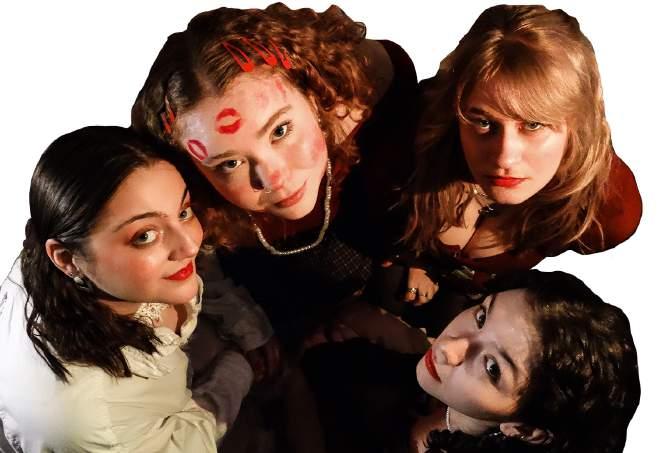
HEALING
LITERALLY
FLEA MARKET INFESTATION THE REALITY OF SEPHORA UNCANNY COUTURE STREET STYLE GOING
MY HEART
ME
UP?
YAMAMOTO ROMANCE EDITORIAL EDITORIAL EDITORIAL ARTIST STATEMENT YMP3 ARTS & ENTERTAINMENT STYLE LIVING 5 7 9 11 13 23 25 27 29 33 43 45 47 49 51 61 63 65 67 69 3 | YOURMAG
SONGS THAT MAKE YOU FEEL LUCKY venus
Letter from the Editor









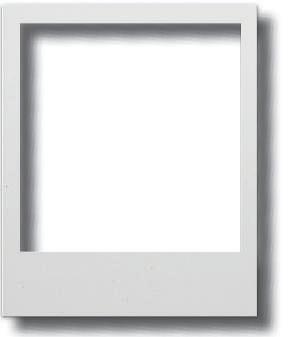
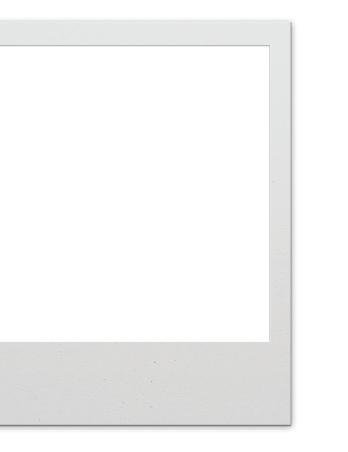
YOURMAG | 4
Dating to Marry, or F*cking to Date?
WRITTEN BY GRIFFIN WILLNER PHOTO BY BIANCA LUND
Irecently had the chance to meet a couple of different men for a romantic rendezvous, resulting in about the same plot each time. We text and decide on a coffee shop, then I go to said coffee shop and waste my hard-earned money on an expensive iced matcha latte. We walk around Beacon Hill or Newbury Street and peek through the windows as we chat about nothing below the surface. Then, we part ways, only for me to sit in my apartment and question why I even try putting myself out there. If it’s not clear already, I am not a huge fan of casual dates.
What is it about dates that makes me so red with rage? Is it the small talk with strangers that makes my shoulders turn a bruised violet from the weight of carrying the conversation? Is it the fact how I feel the need to survey every person I meet and test them to see if they will fit the position of boyfriend? Or, maybe it could be that it feels like a falsification of what a romantic relationship should be: an inherent comfort and intimacy that no other relationship—platonic or romantic—has. Regardless, the bottom line is that these casual moments make me want to scream.
After my last date, I felt an unbelievable sense of ennui sink into my system as I slumped on my leather couch. All things considered, everything went well. We talked about aspirations and shared feelings that lined up like constellations. He was handsome, smart, ambitious, and even taller than me! What was there not to like? As I watched colorful pictures flash across my TV, it hit me. There was nothing wrong with the guy. I was just exhausted from having to perform throughout the date. When a person lacks that intimacy in a relationship, it’s difficult to avoid showering the other person with only their best qualities and stories. Going on a first date is like singing in a cabaret; you only want to highlight the songs and scenes from your repertoire that showcase your strong suits. And sure, it is important to perform a little when meeting another person so that they like you. It’s only human nature to want to be liked. But really, who wants to build a relationship on the lie of their own perfections? I don’t!
So often, many of us feel like it would be easier to date a friend. When a person has that rapport with a friend already, it is much easier to spend time together. If they’re your friend, they already know you’re imperfect and like you just the same. Additionally, you have established solid levels of trust. What could go wrong? For most of us, it’s quite difficult to find someone in our lives who is both our type and attracted to us. For me, it feels like an uncomfortable boundary to break. If I broke up with someone who was my friend, navigating mutuals could be difficult. So are there any safe ways to build a relationship with someone new?
While this scenario might seem a bit progressive, I would much rather have sex on a first date and build our relationship from there. Really, it isn’t that far-fetched. Sexual compatibility can make or break a relationship for those who feel sexual attraction. I can name a number of great loves I’ve had that bloomed from raw sexual passion. In one relationship, we hooked up for months, our bodies intertwined like vines atop bricks. And above our relations were sincere conversations about my hopes for the future rather than if I “liked my classes.” Each time we laid together, I found it easier to talk about my deepest thoughts, feelings, and dreams. And the more we continued, the more I found that I wanted more late nights with him because I could feel my bare emotions caressing our bare bodies. When people have sex, they offer a part of themselves that so few others get to see. Sex is honest. Although a person can role-play, sexual frustration and pleasure cannot be masked by desire for perfection or the image of a perfect self. When I finally do share that hidden side, I find I cannot help but be myself around another person. I like to think that the feeling is universal.
However, my research has shown otherwise. A study published in The Journal of Sex Research, titled “Differing Relationship Outcomes When Sex Happens Before, On, or After First,” indicates sex occurring before or early on in a relationship to be negative in the long term. The study of 10,932 participants highlighted that couples who abstained from sex early on were more likely to last. While the article was published in The Journal of Sex Research, I noticed that it was done through the School of Family Life at Brigham Young University, a religious institution under the Church of Latter-Day Saints. Though the evidence is statistically backed, I find it difficult to believe that the study could have been unbiased.
Again and again, I think my best romantic experiences have stemmed from the swiftly formed intimacy of sexual encounters. While this study might prove otherwise, it’s important to note that sexuality is entirely personal and an individual preference. The coupling process of people is based on creating intimacy, and from my experiences, going on dates has never led to anything profound. Meanwhile, exploring my sexuality with partners has helped me understand both them and our dynamic far more clearly. Maybe I’ll never love dating, even if abstaining from sex has proven to be more beneficial in other people’s relationships. Maybe sex is the answer. All I know right now is that establishing a sense of true intimacy through my hookups has bred longer lasting and more meaningful romantic relationships, and I hope to explore this more in the near future. YM
5 | ROMANCE
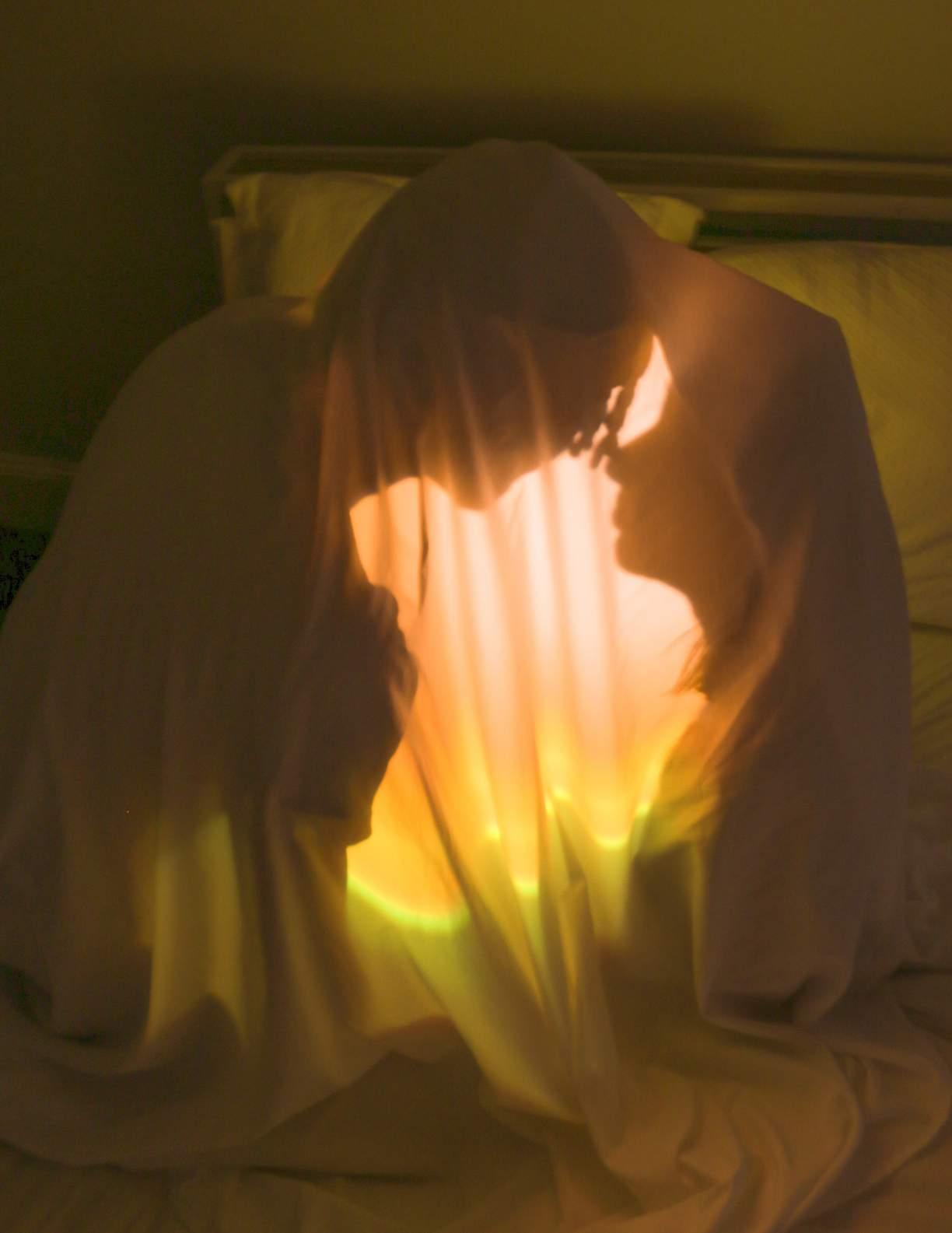




romance | 6

WRITTEN BY ELISE GUZMAN
PHOTOGRAPHED BY LAURA VALENTINE AND BIRIDIE NELSON
7 | ROMANCE





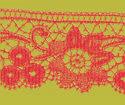



WHAT ARE WE?
Dear Reader,
2023 was certainly a transformative year for me. I studied abroad for the first time, published my writing to an online zine, and the confidence within myself grew; however, something I didn’t have on my 2023 bingo card was getting into a situationship! I truly planned my fall semester to be full of fun and spontaneity and my spring semester to be my globe-trotter “era.” Now, don’t get me wrong, that still happened, but I also fell in love in the process.
Situationship[sich-oo-ey-shuhn-ship].
Noun: “A romantic connection between two people, when either one or two parties would prefer to keep their relationship unlabeled.” A definition, courtesy of a fellow Emerson College journalism student.
Her definition really speaks to the majority of people who have found themselves in a situationship. No matter where I looked––social media, my friends, or my peers––this term had become an epidemic. When I was starting my relationship, it wasn’t labeled purely because I was going to be traveling to Europe in four months, and that kind of commitment didn’t feel right. Little did I know, in the span of four months I’d fall hard. I am a lover girl at heart; if I’m putting my time and energy into you, that means something. While things were going well, and I allowed myself to be vulnerable A LOT of time, eventually we both said the wonderful “L” word. I started to think about the haunting question that plagues us in these limbo stages of a relationship: “What are we?”


It’s a dreadful question, really. You either get a straightforward answer, or fall into the abyss of “I don’t know.” I don’t know? You don’t know?! How can two people go through the





stages of a relationship and when clarification is needed, there is nothing there. It’s the part of situationships that irks me, especially as someone who likes to have all of the answers. One party wants to continue with no labels and lack of expectations for the sake of feeling good where they are. Meanwhile, the other wants that consistency and that monogamy to know that this is their person. Let’s be honest: we know how nice it feels to be able to say “my man, my man, my man,” or whatever phrase you’d like. The ability to say that they’re your person brings a warmth to the heart that’s indescribable. We all want and need safety, compassion, and care as human beings. That’s what a situationship lacks. Throughout it, you will never have that consistency that is needed to grow a relationship.
Hope is what stems through all of these situationships. The hope that your person will wake up one morning and be, like, “You know what? I’m finally ready to make you my partner.” The joy that brings a person! When we’ve put all of our love and trust into that person, I understand how we hold onto hope. For months on end, I too hoped that my person would finally be ready to call me their girlfriend; however, it didn’t happen, and as much as I hate to say it, it is my fault as much as it is theirs. While it sucks to have someone be so contradictory in their words and actions, it is up to us to have the strength and respect for ourselves to say, “I don’t want this, you can’t provide me what I need, and I have to leave this.” The best way to think about it is that we never want to see our friends in the positions we’re in. We know we deserve true love and commitment, but it’s also hard for a lot of us to remember that. It takes work, I can’t won’t lie to you. Yet, it’s not impossible.
As we navigate the year of 2024, I hope we continue to acknowledge what we want and not settle for a love that does not want us as much as we want them. YM
Sincerely,



 Elise Guzman xoxo
Elise Guzman xoxo




romance | 8


Gotta Give a Little to Get Ahead



9 | ROMANCE
WRIITEN BY BROOKE HARRISON
Iwas lucky enough to have someone in my early upbringing talk to me honestly and openly about sex.
My grandma passed away when I was 15-years-old, right when I started to actually explore my sexuality more. Before she passed, she was my role model, best friend, and go-to for any questions or concerns I had about sex-related questions.
She always told me that before sex, one should have foreplay so both partners can get in the mood and start focusing on each other’s pleasure. I was never taught about pleasure at all in school; however, I was lucky enough to not be solely taught abstinence like so many American schools do.
Even with masturbation, it was never normalized amongst my peers that people with vaginas were also entitled to get themselves off. I heard boys brag and make jokes about jerking off all the time, but when my friends and I discovered vibrating toothbrushes and showerheads, we were “disgusting” and no one wanted to hear about that.
What stuck with me the most when my grandma and I talked about sex is that she made me aware that women and AFAB (assigned female at birth) people have to advocate for their sexual pleasure so much more. She explained how men’s and AMAB’s (assigned male at birth) pleasure was always prioritized and that straight sex was never truly equal (We were talking about sex before I truly knew I wasn’t only attracted to men and just wanted to have sex with them, so most of her advice was heteronormative, but I still find it invaluable).
ART BY ISABELLA CHIU
The lack of foreplay, but especially the lack of oral sex that men and AMABs initiate in my sexual history, is honestly kind of appalling. I shouldn’t have to explain to my partner that I deserve to have a moment of my needs being solely satisfied just as much as them.
My other AFAB and women friends have told me how they have encountered men who refuse to give head to women; those who are adamantly against it, but still expect to receive it. This is completely mind-boggling to me.
There’s a dehumanizing aspect to it that can make a person feel like they’re just a sex toy for someone else; something to provide that person pleasure without expecting anything in return.
When I have sex with someone, I want them to feel desired, wanted, and truly engaged with the acts we are participating in, so I obviously expect the same.
I feel like as I’ve gotten older and people have matured, or my taste has gotten better, I don’t have to say my rule as often, but it still comes up.
I think a big shift has been how media and culture around vaginal-oral sex has been portrayed in a more positive light than in past years. Being a “munch,” someone who gives vaginal-oral sex without expecting or getting anything in return, was not a thing when I was first dipping my toes into the world of sex. Men weren’t praised for giving their girlfriends or even a woman they were fucking casually pleasure. When I was growing up, it was either not done, not talked about, or seen as gross.
What she talked about really struck a chord with me. It’s one of the reasons that when I have sex with men and people with penises, if I feel they are not truly valuing my pleasure and ask for oral sex, I tell them, “I don’t give head without getting it first.”
I’ve had too many experiences where the person I’m having sex with sees receiving as a given and giving as optional. Many have been taken aback by my statement, roll their eyes, or even start begging for it in a very temper tantrum-esque way.
I can tell the difference when my sexual partner is getting off to me being pleasured versus only getting off to themselves being pleasured. When I have sex with someone, I want them to feel desired, wanted, and truly engaged with the acts we are participating in, so I obviously expect the same.
It also bothers me that men are now praised for doing what women were always taught to do. When my friends and I first started hooking up with people in high school, we would buy popsicles to practice what giving a blow job would be like so that we didn’t embarrass ourselves and the guy would still like us. We had this shame and fear of not being able to perform well, while it was a miracle if a man even wanted to give us head.
I have yet to find a man who has grown up with that same fear that if he didn’t give a woman good head, she wouldn’t like him. Men get a gold star for even attempting it.
Being a good sexual partner means that everyone involved should feel taken care of and that their pleasure is necessary. Why would you not want your partner or partners to be as sexually fulfilled as you? YM
Sometimes Always love,
Brooke
romance | 10

11 | ROMANCE
Healing My Heart
WRITTEN BY LAUREN MALLETT
You need help, Lauren.”
One of the hardest parts about being in a relationship is admitting when there’s a problem. Even harder? Admitting that the problem stems from you.
Recently, my relationship of over a year was mutually ended for the purpose of healing. Sitting on my partner’s bed, deciding to take a step back from each other’s lives was incredibly difficult. There’s something extra painful about a break up when neither of you really wants that. But, even now, we both agree: we made the right choice.
You see, I was going through it. My fall semester was rough to say the least. I was struggling severely, and I was in the darkest place I’d been in a very long time. And as hard as I tried, I couldn’t hide it, and I certainly couldn’t handle it alone. I needed support, and I needed help, but I wasn’t doing enough to get that. I was completely reliant on my partner to help with all my problems—to an extreme fault. I wasn’t talking to my family, my friends, not even the therapist I paid to listen to me ramble every other week. I was bottling everything up and only letting the floodgates open in the arms of my love. But with that, I was neglecting the needs of our relationship.
The key to a healthy and strong relationship is communication. Sure, there are other factors that go into it, but if you don’t have good communication, you don’t have the proper base to build your connection. So when my ability to communicate started to falter, issues began to form. All I could bring myself to talk about was the mundane happenings of everyday life rather than the tremendous bouts of emotion I was feeling at every waking moment. I was closing myself off from everyone around me, putting up walls, and, in the process, placing all of my strength in the hands of the one person who truly saw me for who I am.
Then very late on a Sunday night, I broke down. I fell apart in his arms, and it was in that moment we both knew I needed a lot more help than he could possibly give me––I needed to heal, and I needed to do it on my own. So we broke up, promising we would still be there for each other, still be friends, but that our roles in each other’s lives would be subdued; We needed to take time away so that I could relearn how to be healthy and function without using our re-
ART BY LILY BROWN
lationship as a crutch. He would always be in my corner to support me- my number one fan, but my health had to come first. I had to come first. For the first time, my top priority was my mind and my needs, not anyone else’s.
For a moment afterward, it felt as though I wasn’t really living; I was just going through the motions. I got up, went to class, wrote my final papers, and did what was expected of me, but I wasn’t really there. I didn’t know what to do or how to put myself first.
What I did know how to do; however, was message my therapist. I sent him an email asking if he could fit me into his schedule before our next appointment, and he was able to. The day before I left for winter break, I had that therapy session, and I opened up about everything. I continued to do so at my weekly appointments with him, in conversation with my friends and family, and even with my doctor as I asked to increase my antidepressant dosage.
I shifted my focus to getting better. I stopped holing up in my room all day. I started journaling to get all my thoughts out of my head so that they couldn’t fester and spiral out of control. I delved back into hobbies I had nearly abandoned, spending my days sewing or reading, truly just letting myself exist in my own company.
And I did the work. I’m still doing it. I’ve been putting my own needs first, making conscious efforts to be open and honest with myself and others in the name of healing. Self-improvement has become my goal. A few months later, I’m doing better than I ever have. So now what?
It’s hard to pretend you don’t have that type of connection with someone you love so much. So, we tried to be friends, just friends, but life had other plans. The past few weeks have been full of passion and love but also some difficult conversations. How do we navigate the journey of going forward, and how do we do it differently to avoid falling back into those bad habits? I wish I had the answers, but I don’t. All we can do is try our best and continue to work on ourselves, so we can work to build ourselves back up. This isn’t ground zero. This isn’t starting over. But it is starting fresh and trying again. I know now, whatever the future holds, that I am stronger now, and we will be too as friends or as more. YM
romance | 12
“

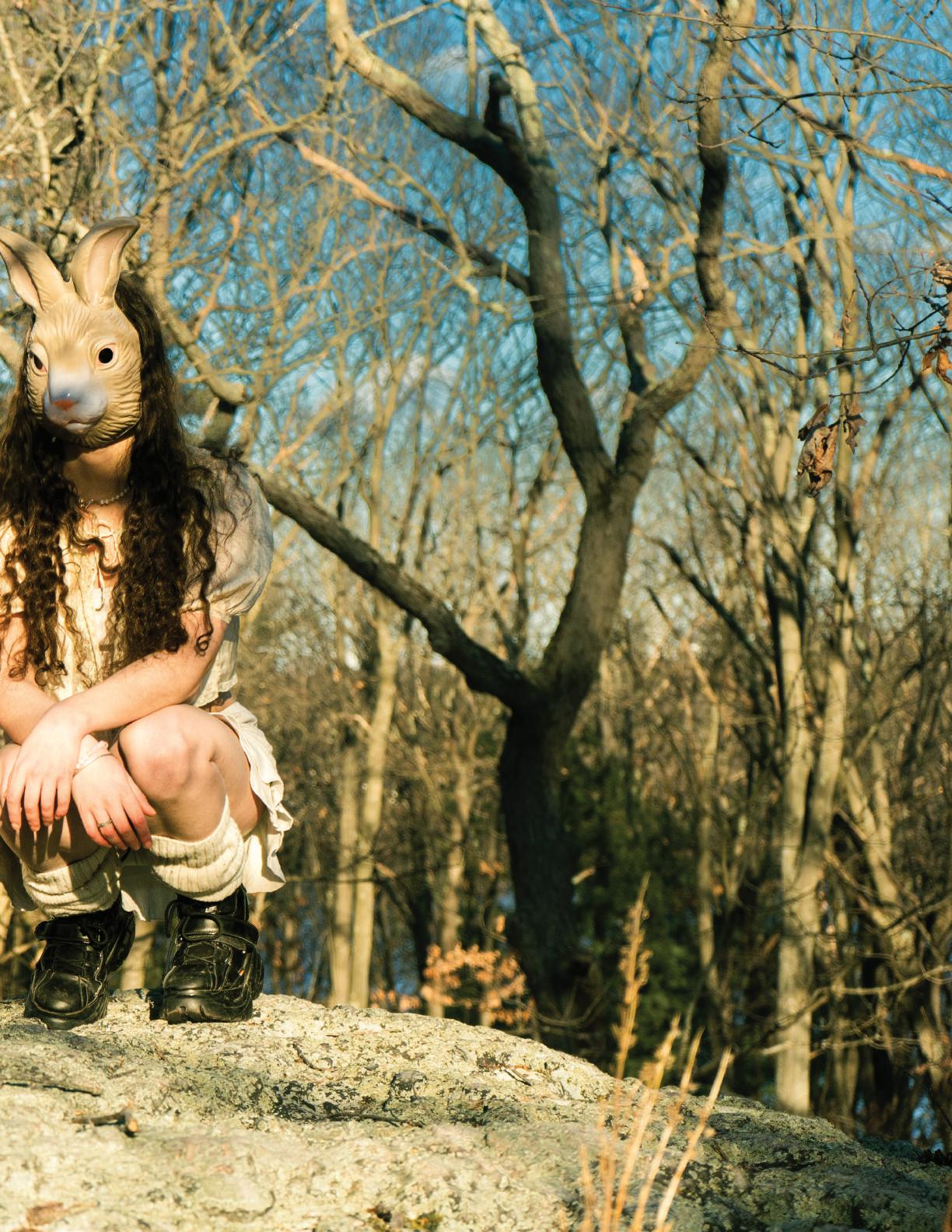
DIRECTED BY LAURA VALENTINE
PHOTOGRAPHED BY LAURA VALENTINE
STYLED BY ANNA BACAL PETERSON
MODELED BY ANUSHKA DIXIT AND ALEXA LATZMAN

Literally Me


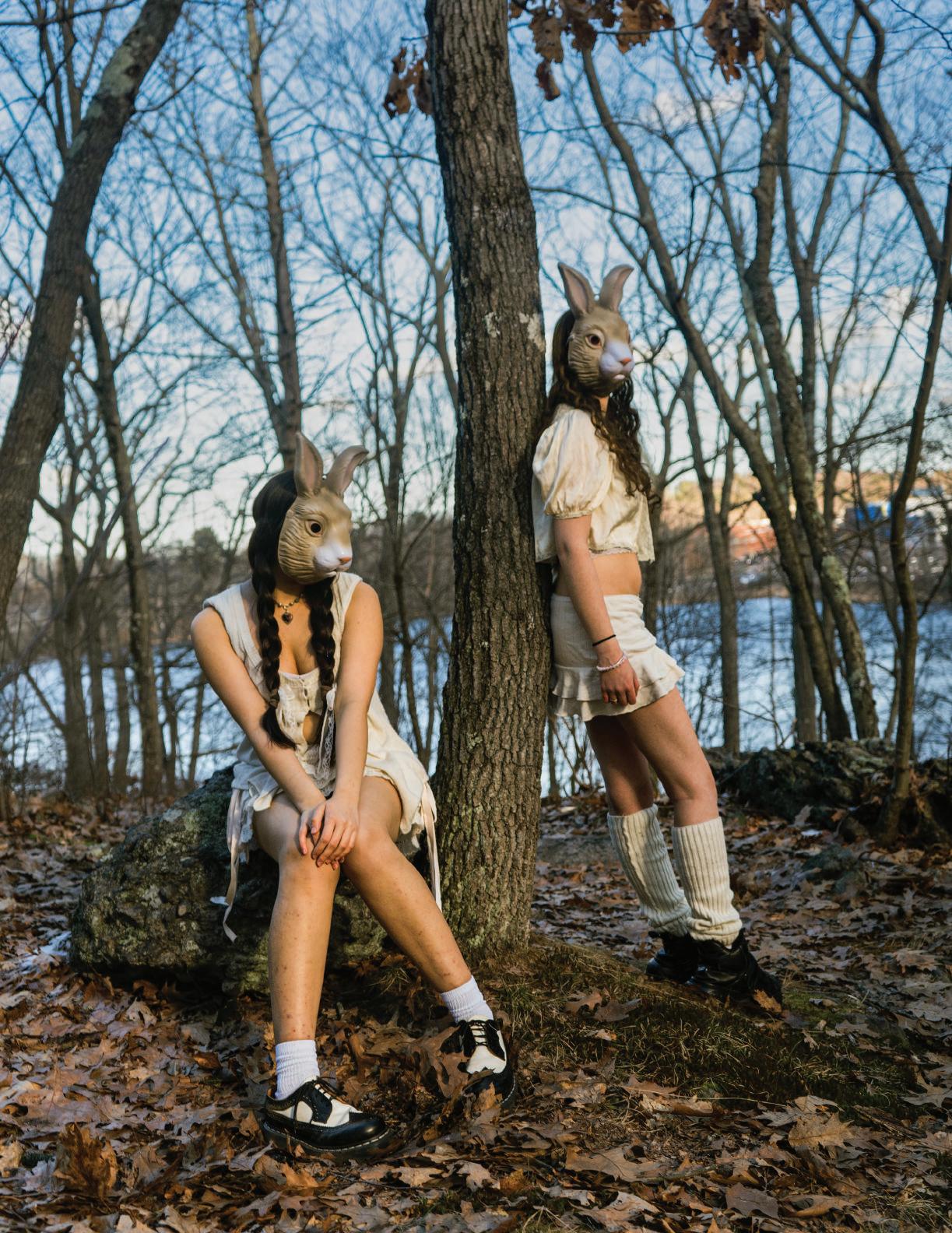






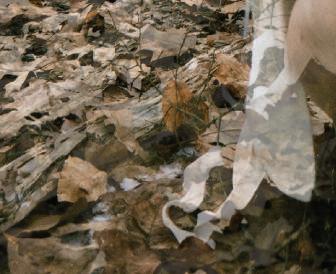















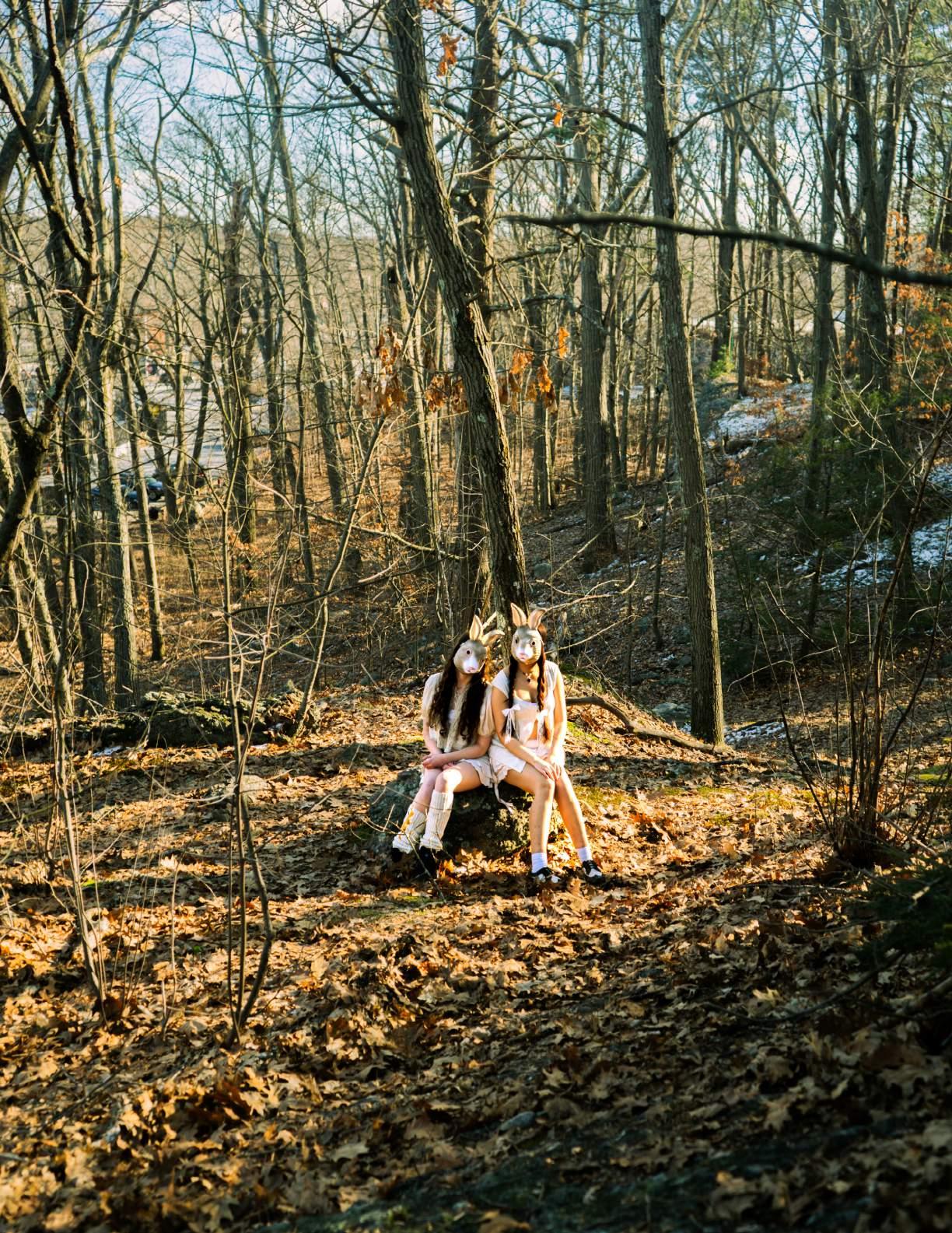

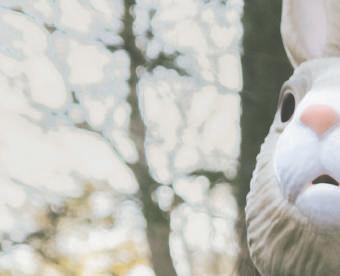







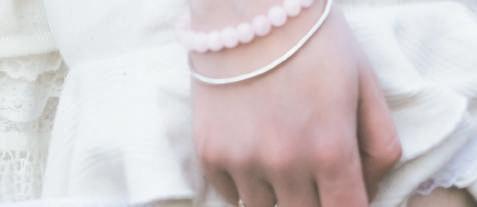



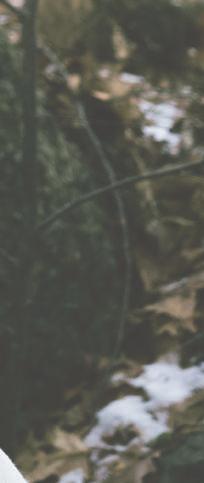



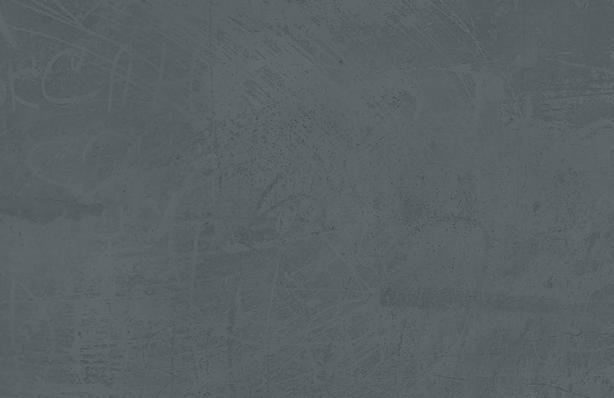
AFlea Market
WRITTEN BY SOLIA SIMPSON
man with a clean-shaven head and a handlebar mustache is posted at a table, selling hand-painted grains of rice and healing crystals. Down the way, you may get lost in a plethora of grandpa sweaters and old VHS tapes, probably ones the grandpas actually watched. A woman may beckon you to observe her intricate leather works before offering her Instagram account where you can DM her for stick-and-poke tattoos. Carhartt jackets, still stiff with the scent of Newport cigarettes and cement splatters from their previous owner, line the racks of the booth beside her. On the same rack are three pairs of assless chaps, the leather worn, implying that they were put to good use. At this moment, I wonder if I could pull them off.
From a bird’s-eye view, flea markets reflect something of an indie-fied Where’s Waldo scene, one that invites you to jump into the page as you begin your search. On a broader scale, fleas suggest more than just a fun way to meet people and their creations. They are
a valuable outlet for cutting through the noise of overconsumption.
In this current market, profit is most important. One effect of this is soulless transactions; there is no interaction between the consumer and the person who created the product. With this relationship becoming more and more estranged, it’s no surprise that people are aching for something different.
Flea markets are the hot spot for anyone who wants to find a one-of-a-kind purchase to up their style game, something that many people are aching for amidst an oversaturated market. The majority of advertisements lean into depersonalized cash grabs. Think, “must have items,” fast fashion trend cycles, and celebrities’ “products they can’t live without.” In this way, consumption has become synonymous with happiness. While this may seem unfixable, there are ways to lessen its impact. Fleas are a breath of fresh air, veering toward connection, prioritizing human interaction, and opposing purchasing
23 | STYLE
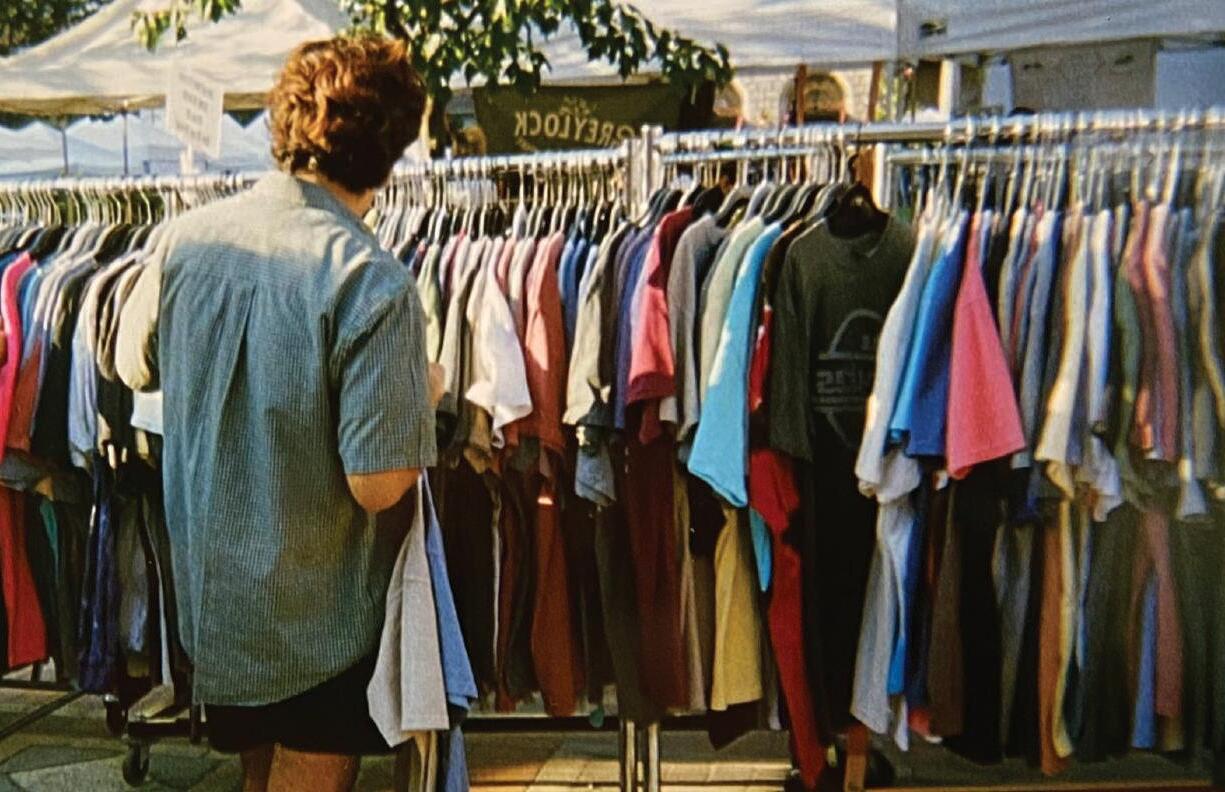
Market
Infestation
 PHOTOGRAPHED BY HAILEY KROLL
PHOTOGRAPHED BY HAILEY KROLL
for the sake of purchasing.
Most everyone has heard the phrase “no ethical consumption under capitalism,” but Ashwini Vivek suggests in her article “‘No ethical consumption’ is no justification for spending” that “The phrase originally dominated social media with the intent to put the onus on unethical corporations. Over time, the phrase has warped into a justification for our excessive support of fast fashion companies. H&Ms are popping up as frequently as Urgent Cares, influencers are pushing out huge brand deals to huge audiences, and it seems futile to worry so much. ‘No ethical consumption’ has come to mean that since there is no way to avoid harm, why bother trying to minimize harm at all?” While I do agree the burdens of capitalism should not be placed on the individual consumer, if capitalism is a cog we are stuck in, we might as well try to combat it a little.
Flea markets as a channel of distribution offer something com-
pletely new and separate from other forms of product pushing. Upon attending a flea, it is overwhelmingly clear that while profit is inherently prioritized, it is nothing compared to the value placed on human interaction and connection. It is “...a shift from industrialization to networking,” as Tyler Fonda writes in his article, “Flea Market Capitalism.” The idea that profit and production are the most important aspects of our economy is starting to change.
The independent nature of these markets mean the growth of small businesses can flourish without monstrous bank loans or government subsidies. The workers are directly linked to the means of production. They decide what to sell and when, how much to charge, where to sell, etc. This is incredibly valuable for everyone involved; artists and vendors get complete creative control, and consumers get something unique and often one of a kind. YM
STYLE | 24





WThe Reality of SEPHORA
WRITTEN BY EMILY MARTINEZ PHOTOGRAPHED BY HAILEY KROLL
hen I first landed my job at Sephora, I only wanted it for the free products and discounts on beauty products. I’ve always had a passion for makeup, but I didn’t know it was going to be simultaneously one of my best and worst jobs yet.
I thought I was going to stock products, be a cashier, and perhaps give recommendations here and there. When they started training me on how to sell an AHA serum and hyaluronic cream bronzer at the same time, I was confused as to why they were teaching me this. Yes, it was so we could make more sales, but also because when a customer with acne-prone skin comes in wanting to achieve a glowy finish, they are almost always shopping for skin care to prevent future breakouts too.
Now does everyone want a glowy look? NO! In fact, I learned that quickly.
There are a few types of customers that walk through those doors: the 10-year-olds who raid the Drunk Elephant and Summer Fridays section, those who want to remove or hide a certain feature, and the “browsers” who are looking for the trending TikTok products. We have more in between, but let’s get down to the top three.
Which one is my favorite customer? It honestly depends on how I’m feeling that day.
I help, I really do, even the 10-year-olds because, believe it or not, I see my younger self in them. I was a stan of the YouTuber Bethany Mota, although all of her products were half the price at Target. It’s a remarkable experience as a 10-year-old to buy your first lip gloss with your Christmas or birthday money; it’s the gateway to the world of makeup. They get so excited over the pretty packaging convincing their parents that the 20 ingredients in the product won’t damage their youthful skin. In the end, it’s that first product and the memories at Sephora these kids hold onto, and our staff makes sure they don’t forget it.
Now we move on to the adults who come in and have a goal, and that is to remove or de-emphasize a feature of their physical appearance. This is the customer I dread because I absolutely hate seeing a person openly talk down on themselves. They start sharing how much they hate their acne scars, dark circles, or big fat nose. In my head, I instantly go, “EXCUSE ME, YOUR NOSE IS NOT FAT.” These clients don’t make my job difficult; they make it more important. Sometimes all they need is to talk it out with a stranger. To hear that whatever imperfection they were fussing about is truly not there and that they shouldn’t see themselves as less because of it. Luckily our staff knows how to boost someone’s confidence and how



to be that open ear. I used to think my coworkers and managers were chirpy and too extroverted, but scenarios like these are why they were hired. Our personalities come through, and while we begin blending in the concealer over their desired targeted spot, we shout our favorite line, “YASSSSS!” We treat them as runway models; we grab the nearest coworker for a second opinion and instantly give our final thoughts on what we think looks best!
Now we move on to the people who just come in and shop. These are my favorite. These customers are here for the plot. They swatch and are really at Sephora to pass the time. They are the ones who get in your business. There have been countless incidents where I’ll be helping someone seek the most flattering blush shade and someone will butt in and start showering them with compliments. They’ll begin chatting on their own about what looks good and doesn’t and laugh until socials are exchanged. The conundrum between blush shades has been solved and both customers have a smile on their faces. I guess you can say Sephora has become the new meet-cute to make new friends, huh?
But now we talk about MY experiences.
When I do my fake blowout and a full set of makeup, I hear nonstop, “Omg, I love your hair,” “It’s so thick you are so lucky!” Little do they know that I have hated the thickness of my hair since I was eight years old. Working at Sephora has changed my attitude towards my hair, and it has genuinely become my favorite feature. Though the days I don’t wear makeup and my small eyes are prominent, I don’t seem to get the same respect. I’ve always said don’t judge a book by its cover, yet it happens all the time at Sephora. I’ve had customers roll their eyes at me when I’ve shared a concealer recommendation and side-eye me when I ask them if they need help. There’s an expectation from customers that our employees should know every single shade for every single product. We wear a full face of makeup and have healthy and voluminous hair. But the truth is we’re all still learning, and we all have different favorites. Not every person follows their color palette, not every hydrating serum suits all dry skin, and our holy grails always change. We recommend what we know, and within that, we get to know ourselves a bit better too. I used to think orange-red lips flattered me, but I’m now a cherry-burgundy girl.
Next time you go into Sephora, know that we’re your friend. We were all that 10-year-old kid who bought their first lip gloss years ago. We still get excited when buying the new Summer Fridays lip shade, so we hope to add to your experience and make the memories last. YM
25 | STYLE



STYLE | 26
UNCANNY couture
The never-ending void of unrealistic body standards just got exponentially deeper. The use of artificial intelligence has infiltrated almost every aspect of fashion marketing, and most recently, has posed a serious threat to the existing modeling industry. It’s becoming increasingly popular for brands to utilize AI software to create “models” for their new collections, and while these advertisements truly are captivating, the implications for instituting these non-human models into the world of fashion are potentially dangerous. There is no denying that these ads are incredibly effective in grabbing your attention, but looking more closely at what about them exactly draws you in is a bit unsettling.
As AI becomes a more popular mode for artistic expression, a fear of the “uncanny” has recirculated. We, as humans, are simultaneously attracted to and repulsed by an image that appears “human-like” but isn’t, in fact, human. The “uncanny” can be used to evoke visceral reactions from audiences; being confronted by reiterations of faces and bodies that you will never be able to relate to can be extremely unsettling.
One of Instagram’s new favorite creators, Lil Miquela, is your average 19-year-old living in Los Angeles. She likes elevating her style with funky hair colors, hinting at “special projects” she has underway, and hanging out with her equally fashion-forward friends. The only difference is that Miquela is a robot. Her following of over two million people is evidence of our collective fascination with the uncanny, and her partnerships with elite fashion brands over the years are evidence that the intrigue has infiltrated even the most established companies.
When I first stumbled across Lil Miquela’s page, I didn’t quite understand what I was looking at. She looked like a Subway Surfers character come to life: her brightly colored hair and completely vacant gaze gave the illusion of a cheerfully aloof model. One whose managers didn’t let her see the sun very often. In 2019, Miquela was featured in a Prada commercial with Bella Hadid, a “real” model in the industry. Surprisingly, the major critiques of the commercial were centered around the manufactured sexual tension between Miquela and Bella, not the artificial intimacy present between the robot and her supermodel collaborator. Since then, the public’s attachment to virtual versions of humanity, as well as AI-related technology, has only increased. Remembering the days when headless and perfectly chiseled mannequins set the precedent for buyers’ body images, the inclusion of AI models in fashion advertising doesn’t seem like that big of a stretch.
ETRO, an Italian fashion house that’s been around since the late sixties, has recently debuted its most recent campaign, “ETRO
Nowhere: Out of Time in Another Space,” to the public. The only (and quite major) difference between this collection and those from years past is the models and settings they used for the advertisement of their new collection. ETRO is known for its almost otherworldly type of fashion, specifically for its almost otherworldly textile patterns;
from its handbags to its t-shirts, you can also count on recognizing the brand by its mesmerizing patterns. You could count on the aesthetic of their pieces to characterize the reception of the new fashions: rich with bold colors and loud, yet tasteful, prints. Now it seems with the release of ETRO SS24, the brand has fully leaned into the idea of representing “a higher level of expression, a place of imagination only,” which apparently, is a place without genuine human models.
I can see why it makes sense for ETRO’s branding, with their luxurious and often unconventional styles, to adopt a campaign that features advertisements with solely AI-generated models and backgrounds. Yet, I can’t help but feel that they have somehow lost the original plot of their company’s ambitions! As crucial as it is to create and maintain an image for your brand, isn’t the point of creating a recognizable and intriguing collection to sell to people? Real people?
Seeing clothes modeled by alienesque figures is not necessarily all that enticing to me, seeing as I, myself, am not an alien-humanhybrid with an intergalactic waist size. Visually? Yes, the campaign is stunning, but looking into the eyes of one of the AI models for too long sends chills down my spine. When I look toward models that are already present in the industry, questioning the stability of their place within fashion advertising is only fair. Despite the runway for being a seemingly quintessential aspect of the fashion industry, both for designers and for models, I wouldn’t be surprised to see Lil Miquela’s role as a fashion ambassador taken even further. If our digital marketing spaces are soon to be dominated by AI-generated campaigns, why wouldn’t our runways face the same fate?
Comparing the ETRO SS24 runway show with its recent ad campaign, they are surprisingly similar, which begs the question: Why use AI models if the runway is just as visually striking and captivating? While pushing for fashion to be imagined in a fantastical and creative space is commendable, making sure that the buyer can picture themselves in these miraculous pieces is arguably an important piece of the equation. An AI model can adhere to any body type, yet the almost alien-like models in ETRO’s advertisements are not very reminiscent of a human figure. Imagining what that article of clothing or bag, would look like on a real human body is a lot more difficult when the depicted model isn’t human themselves.
Predicting that AI models will continue to infiltrate the fashion advertising world is a given, and their involvement with the future of fashion is a safe assumption to act upon. Given our fascination with the uncanny, the rapid development of artificial intelligence technology, and our willingness to accept robots as personal representations, it seems that AI is here to stay in the world of fashion. All that’s left to do is sit back, observe, and prepare for the redefinition of the fashion industry’s relationship with humanness. ym
27 | STYLE

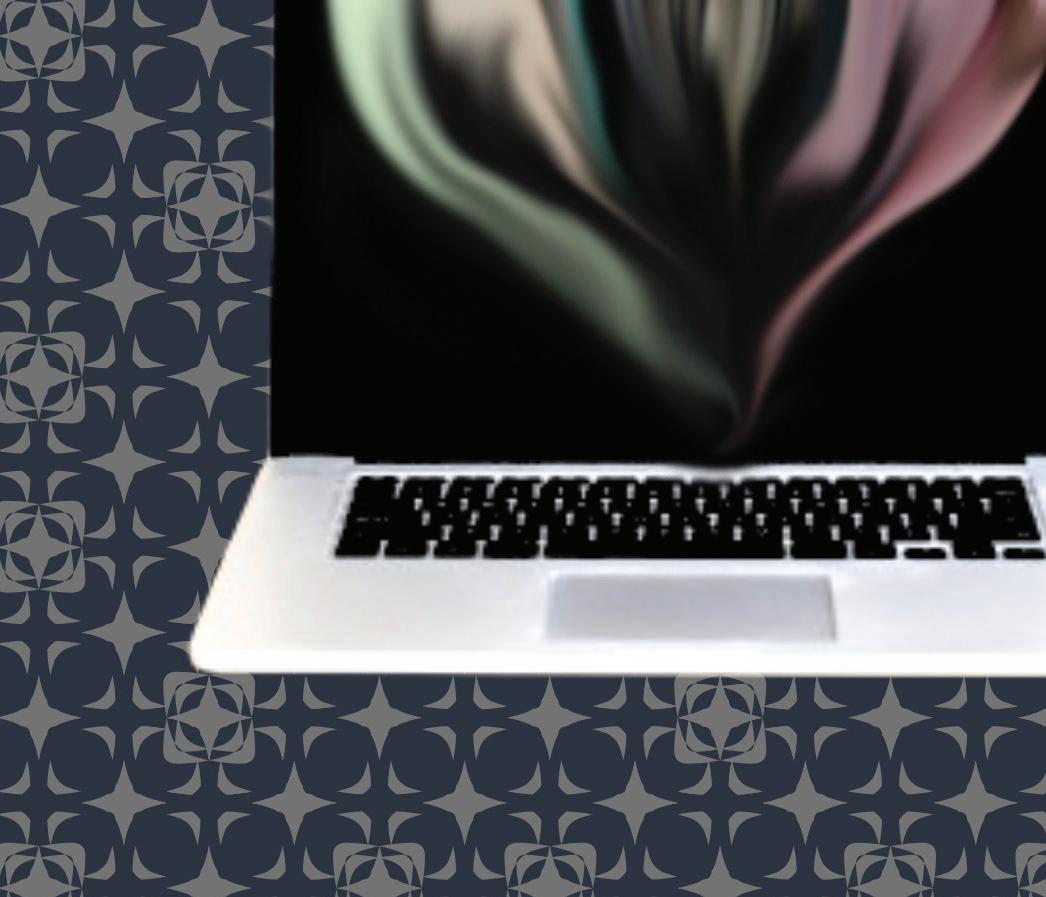

STYLE | 28
WRITTEN BY GIGI SIPIORA
ART BY ISA LUZARRAGA
f r a n c e s
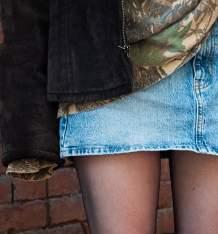


Name, pronouns



“Frances Markey, She/Her”
How would you describe your personal style in three words?
“Maximalist, chunky, versatile.”
Where do you typically get outfit inspiration from?
“My bestest friend ever, CC.”
If you could only shop at one place for the rest of your life, where would it be?
“Blue Haus Collective in Denver, Colorado.”
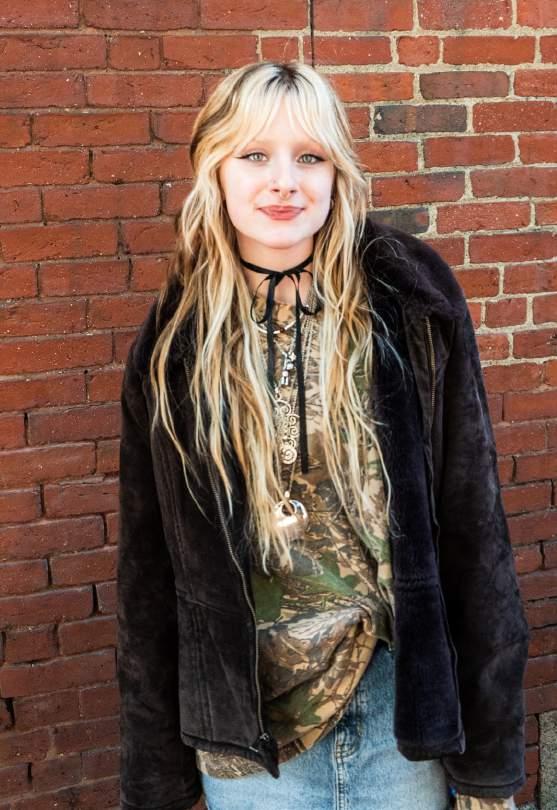
Celebrity style icon?
“Laura Valentine.”
What are three pieces of your wardrobe you can’t live without?
“Big silver circle necklace, black Levi’s 501s, ribbon round my neck.”
29 | STYLE

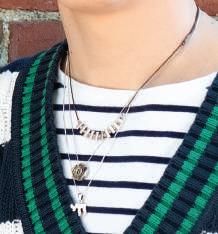
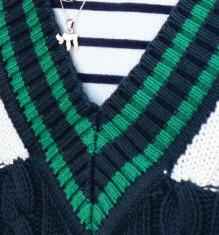
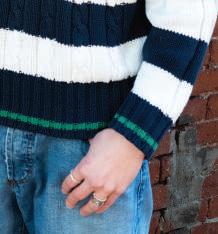
Name, pronouns
“Nate Kahn, He/Him”
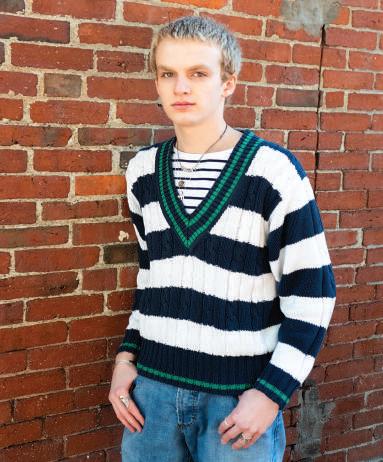
How would you describe your personal style in three words?
“Eclectic, pattern mixing, denim.”
Where do you typically get outfit inspiration from?
“Friends and magazines.”
If you could only shop at one place for the rest of your life, where would it be?
“The RealReal.”
Celebrity style icon?
“It fluctuates.”
What are three pieces of your wardrobe you can’t live without?
“Jeans, silver jewelry, sweaters.”
i s a b e l l


eName, pronouns
“Isabelle Galgano, She/Her.”
A T E
How would you describe your personal style in three words?
“Girly, flowy, vintage.”
Where do you typically get outfit inspiration from?
“Pinterest, friends, and random Emerson students with cool style.”
If you could only shop at one place for the rest of your life, where would it be?
“The Savers thrift store near my house.”
Celebrity style icon?
“Enya Umanzor.”
What are three pieces of your wardrobe you can’t live without?
“My long black skirt, my Doc Marten loafers, and my ‘I <3 Pickles’ shirts.”

STYLE | 30
N
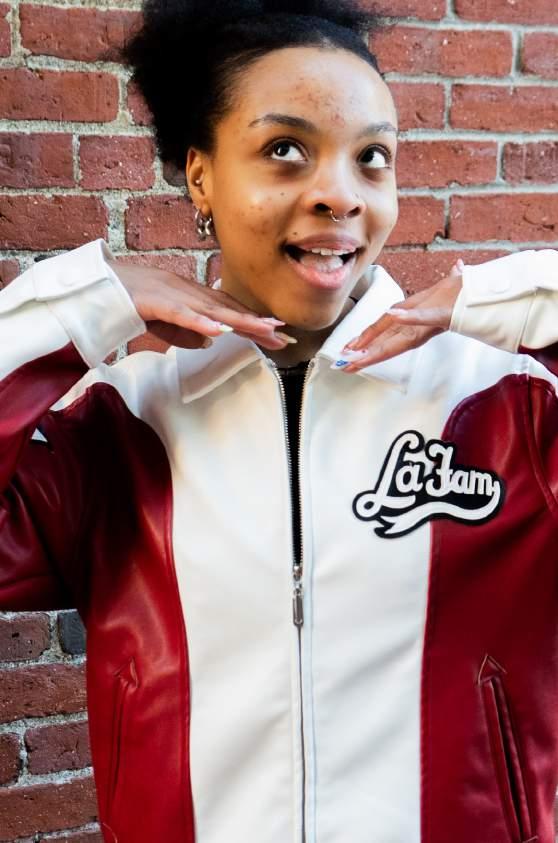
Name, pronouns
“Kalyn Thompson, any pronouns.”
How would you describe your personal style in three words?
“Intuitive, fresh, trendy.”
Where do you typically get outfit inspiration from?
“Anywhere and everywhere. I love getting inspo from movies and shows. Different content creators. Everyday people inspire me, too. Like, if I see someone with a fun ‘fit on, best believe I’m letting them know and asking for outfit deets.”
If you could only shop at one place for the rest of your life, where would it be?
“Depop --- this might be cheating.”
Celebrity style icon?
“Lynn Ann from Girlfriends and Koleen Diaz (@koleendiaz) on Instagram.”
What are three pieces of your wardrobe you can’t live without?
“My faux sherpa coat, my slightly bleached BDG jeans, and my black Sambas”







31 | STYLE
K A L Y N

S O P H I A
Name, pronouns
“Sophia Varley, She/Her.”
How would you describe your personal style in three words?
“Cohesive, autumn, cozy.”
Where do you typically get outfit inspiration from?
“Rachel Green, and literally all of my friends here, they’re so fashionable.”
If you could only shop at one place for the rest of your life, where would it be?
“Literally any thrift store!”
Celebrity style icon?
“Rachel Green.”
What are three pieces of your wardrobe you can’t live without?
“My black Steve Madden boots, jean jacket, and fleece-lined tights.”
LA Z E
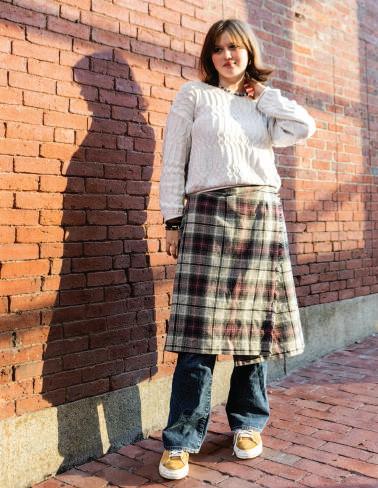


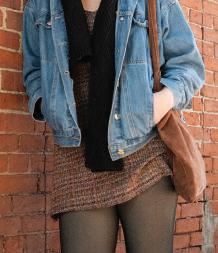

HName, pronouns
“Hazel Armstrong-McEvoy, She/Her.”
How would you describe your personal style in three words?
“Erratic, retro, girlish.”
Where do you typically get outfit inspiration from? “Mainly Pinterest, but also very inspired by the FRUiTS magazine! It can get weird tho... sometimes I see the sky and think of an outfit.”
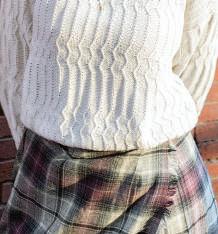

If you could only shop at one place for the rest of your life, where would it be?
“Da thrift. Specifically, Experienced Goods in Brattleboro, Vermont!”
Celebrity style icon?
“Alex Consani, Laura Valentine, and Jimi Hendrix.”
What are three pieces of your wardrobe you can’t live without?
“My headphones, fav accessory! Fur Jacket, an essential 4 winter. Scottish Kilt, just too good.”
STYLE | 32
GOING
DIRECTED BY ISABELLE

GOING UP?

ISABELLE
GALGANO, PHOTOGRAPHED BY EMMA CAHILL, STYLED BY BIANCA LUND, MODELED BY GABBY GOODE





















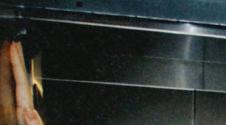






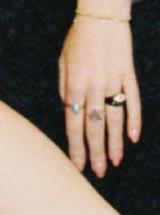

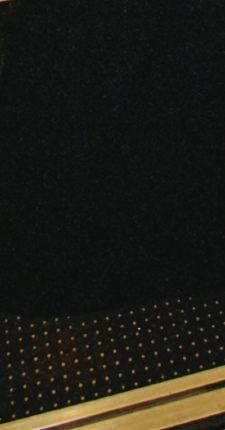

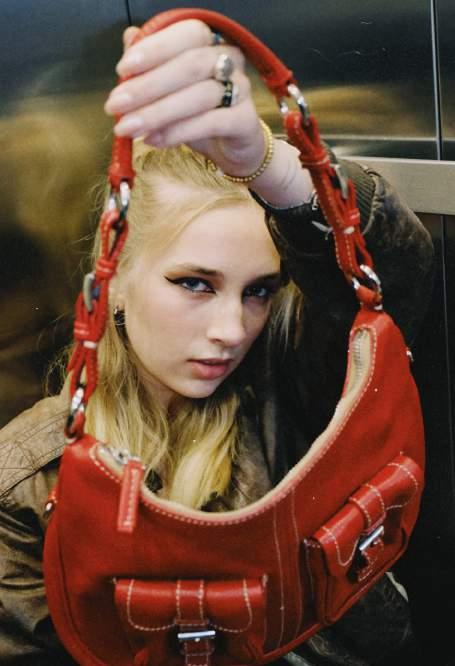
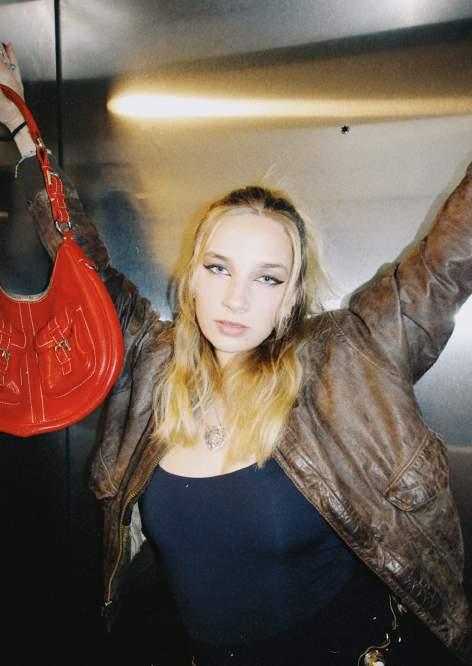






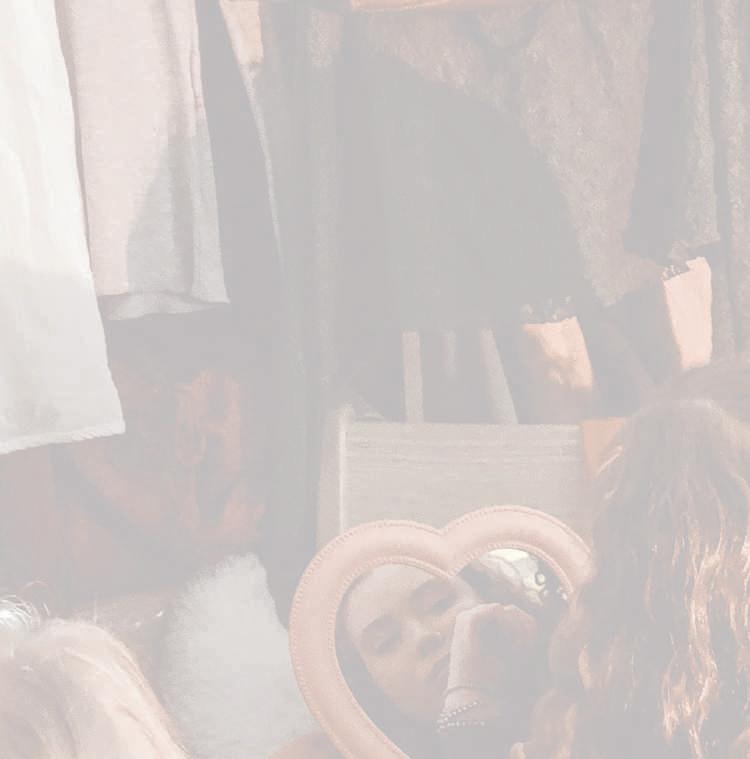

I’m a ThankGirl,God
WRITTEN BY MARGARET KEATING PHOTOGRAPHED BY NATALIA OPRZADEK
In May of my senior year, Tess Tickner, a name rivaling Regina George, took a video up my skirt. I was walking up the stairs, early in the morning, in my public high school. She captioned it, “I can’t believe this is allowed.” Then, she posted it to her Snapchat story.
A lot of the details of the story aren’t important, other than the fact that it sent me into a spiral for months. My heart sank every time I looked in the mirror.
I’m tall, I have wide hips, and long legs. I’ve struggled to find skirts that fit me in the waist but are long enough in the back. All I could think was, if I was smaller this wouldn’t have happened. She wouldn’t have noticed my skirt being short if I wasn’t my size.
While I dealt with the ripple effects of the video, my mom tried to reassure me.
“Don’t let it get to you,” she said. “You know it means nothing.”
But that just wasn’t true to me. By merely existing, I had bothered someone enough to get her to post on social media about it. My body was offensive to her.
I can’t believe this is allowed.
Tess seemed to defy all logic to me. I thought that girls didn’t slut-shame other girls for the clothes they wear anymore. At least, there wasn’t much of a dress code at school anymore. Since middle school, I had friends who were accepting of all kinds of beauty. I was living in a bubble.
But I remember how it felt good to wear that skirt. I remember how I felt really pretty that day. That confidence was annihilated, stolen from me as easily as shoplifting a candy bar. Still, I obsessively tug at the bottom of my skirts when I wore them.
Maybe it hurt more because it was a girl who did it. I knew how boys talked about me at school.
“You have the nicest ass,” my first boyfriend had said. He grabbed my hips and pressed himself against me while I drank from the cafeteria water fountain. We were 15-years-old. I expected that kind of bullshit from them. But girls? Girls were supposed to have
my back.
When June came, I tried to let the sun fix all of my problems. I spent my days trying to have a movie-worthy summer before college. The kind you see edited in a montage with some terrible indie-pop song playing over it. The circle of people I surrounded myself with was ridiculously large, the kind of group that could never be sustainable. I went to house parties in some guy’s basement and fought with my boyfriend about nothing at all. But I convinced myself that if I had all of that—the friends, the boyfriend, and the movie summer—I would be happy. I earned their respect. Respect isn’t understanding. At the time, I thought my boyfriend got that. At least, he didn’t get angry with me when I asked him if we could stop being intimate for a while.
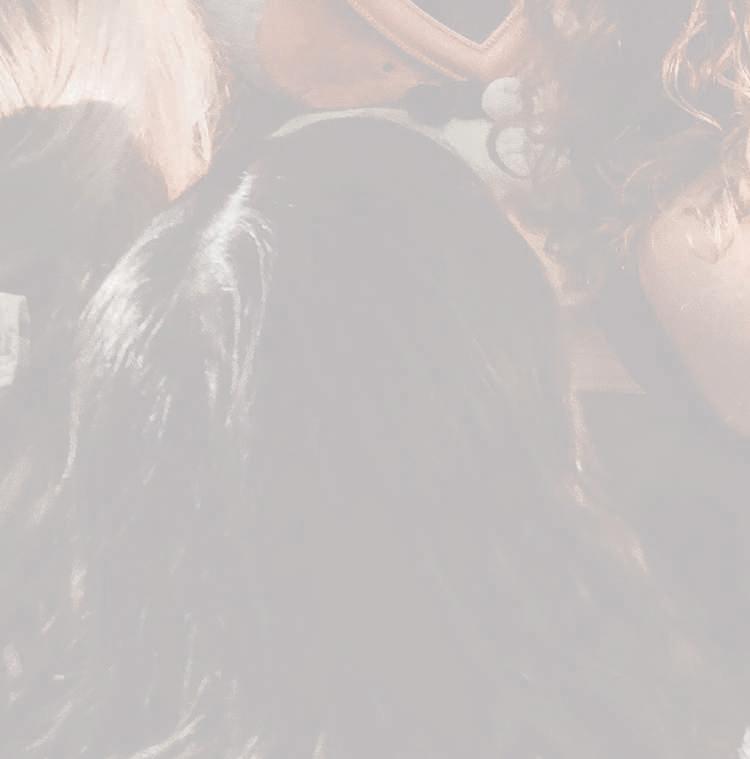
High school is a cesspool of gossiping voyeurs, of course my friends found out. I remember trying to express more than just the facts of the situation; how it made me feel, what I thought it said about society. One of my male friend’s reactions stuck with me. “Yikes.”
Yeah, no kidding. Some reactions to my deepest emotions felt like something along the lines of “death to all girls bigger than a size ten!”
I said goodbye to my high school friends when summer ended. High school was in the rearview mirror—fucking finally. It’s easier than it seems to let go of something you’re tired of loving. All it takes are the right new people to make you forget the old ones (with the exception of a special few). Plus, living in a city makes you feel like you’re blending into the background. Boston made me feel like there were no more prying eyes.
Girls I had never met before became everything to me. On my first day of college, a girl in one of my classes wore the most beautiful heeled boots. To say it in words feels dumb and cliché, but literally just witnessing another girl’s confidence was enough for me. She wore something I’d always wanted to wear with such ease.
My female professors became everything to me. My first literature professor assigned poetry by Emily Dickinson and Marge





45 | living





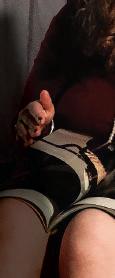




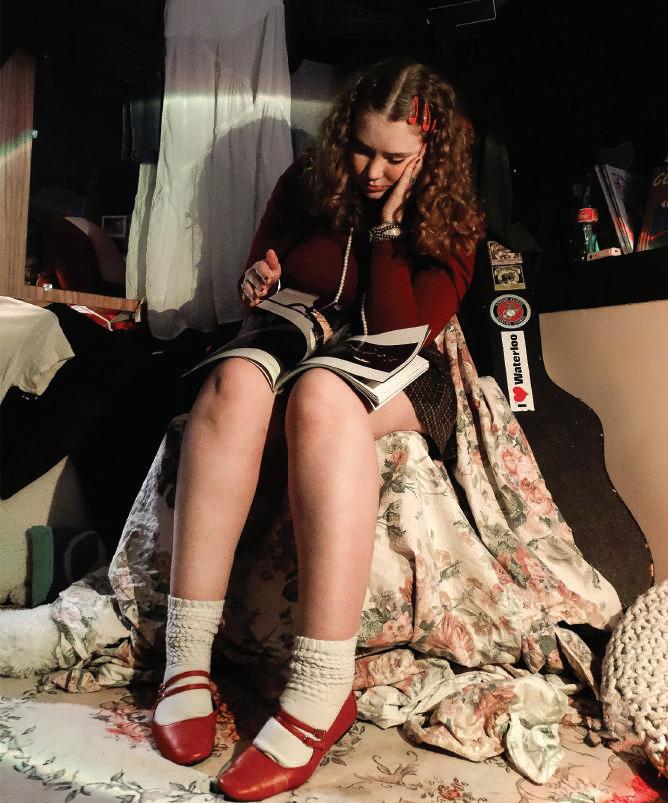

Piercy’s “ The Secretary Chant.” We read short stories about feeling trapped in the domestic sphere, being nothing but a body and a wife. We read things that I knew subconsciously about myself, but seeing them on a page made me ill over the male gaze, and thrilled that someone else felt the same way. I broke up with my high school boyfriend when the class was over. He could not understand the changes that were happening in my head.
My girlfriends became everything to me. They took care of me the way I had always needed girls to. My friend complimented an outfit I wore. Tights and a skirt, something I would’ve never considered senior year of high school. Back then, I was too scared to express myself, even a little.
“Whenever I’m nervous about wearing a skirt or a dress to class, I think about how amazing you look when you do it,” Bea said.
I could do that for someone too. There isn’t a single body in the world like mine, but I know that we all struggle the same. I would die and go to heaven if I never look in the mirror and suck in my stomach again. But I’m not angry at Tess for what she did. Someone else taught her that skinnier was better, that imperfect bodies should be concealed. I’m sorry that she didn’t have people in her life to help her learn that her body is allowed.
I wear skirts often now. And I feel pretty in them. YM


living | 46

IAll or Nothing
WRITTEN BY ISABELLA CASTELO
want to join a convent.
However, not for religious reasons. I’m an atheist, one who grew up in the Catholic church. Even as a child, I couldn’t make myself believe in something I couldn’t see. I thought faking it would work; I dutifully went to mass every Sunday, on mission trips, and to church camps. I was desperate to find the connection all devout Catholics have, the one found in their fervent love for the Lord.
I assume this connection is strongest in a convent. Just me and my sisters of God, doing work for the community, praying, studying the word. Everything we said, wrote, made, and did would be in the name of God, but at night, we’d tell each other tales of our lives left behind with so much drama we’d forget it wasn’t fiction.
This is the life I imagined when I visited an old convent in Prague. It was converted into a Catholic museum, and despite my love for biblical history, all I could think about was the women who walked the halls before me. I felt their passion. I craved their commitment. I couldn’t fathom loving something so much that I would leave behind any possibility of living a life for myself—one with romance, some parties, sleeping in, and wearing pants.
Although it fascinated me, I thought most of my peers would agree that level of dedication is unattainable and unnecessary. Recently, I learned I was wrong. My professor looked us in the eyes and asked if we would ever die for anything. His face was straight, and he held his gaze, inviting our answers.


“No,” I said.
“Why?”
“Well, I don’t know I don’t care about anything as much as my own life, is that wrong?”
“No.”
That was how the conversation between us went. What he was getting at, I don’t know; it’s a philosophy class, and a lot of it goes over my head, but he did get me thinking about those nuns. As my
ART BY REBECCA CALVAR
peers went around and shared the things they would die for. For the rest of the class, I racked my brain for something I was even remotely passionate about. Nothing came to mind. I listed all the things I’ve tried to devote myself to: politics, the environment, reading, photography, philosophy, the ocean, and language. I’ve spent years forcing myself to care about everything under the sun, and all I’ve learned is that I can’t.
My professor said self-improvement or self-preservation were valid answers—but those aren’t my answers. I ended the conversation there, but I couldn’t even cop out and agree with him. A self-help TED Talk makes me fall asleep, and I wouldn’t describe my passion for “self-preservation” as zealous.
Everything I know about passion was taught to me by people who would die for what they believed in. I look at my mom who wakes up at 5 a.m. to study the Bible, soldiers who are ready to drop everything to fight for our freedom, and the nuns in Prague. I’m intimidated by these examples. They told me that if I’m not willing to make sacrifices, to give up everything, then there is no point in doing it at all.


I admire their commitment, but simply liking something in the shadow of all that passion is impossible. I’m ashamed when I say I like to write, or that I like the ocean, or that I want to learn more about philosophy. Despite all these things being true, none are worth my life, and my nonbinding “likes” don’t seem as valuable as an oath to serve and protect or a vow of chastity.
For now, there’s nothing I would die for, and I’m fine with that. Maybe one day I’ll stumble upon something enticing enough to show me what being passionate feels like, but I’m done searching. I’m done going out of my way to force a feeling.
Now I know if I were to join a convent, I’d have fun for two or three days, then cry to a bishop to set me free from the sweaty grip of God. And I’d do it all without seeking penance. YM

47 | living

living | 48



49 | living
B rds
WRITTEN BY KIRA SALTER-GURAU ART BY ISA LUZARRAGA
Isee my dad twice a year. The last time I saw him feels like the kind of memory one associates with a photo—stagnant, an anecdote. We sat in a coffee shop in Boston at a small round table for an hour, sipping on coffee. It was brief. This time, jumping out of his car, he greeted me with a tight, bony hug at the North Carolina airport. It felt nice to see him, I softened as he held me. When we got back in the car, he offered me corn nuts cupped in his hand, then we drove south to MerleFest.
As we stopped to charge his car, it began to downpour. Dad jammed the charger into his car repeatedly, like a child shoving a round block into a square hole. The rain coated him completely and I chuckled.
At Zaxby’s, a diner with checkerboard walls, harsh lighting, and cute waitresses, my dad advised me not to shape myself around others. “People love talking about themselves,” he urged, picking at the complimentary peanuts. “So, all my life, I’ve asked other people questions. It’s just easier.” He discarded the shells in a napkin. He’s a messy eater. Muffins fear him.
Dad left a meager tip and we drove to Wilkesboro. Slipping into rain jackets, we moseyed over to the stages where MerleFest rumbled with fiddles and fried fish. The rain blurred the evening into a green hue, a tsunami of pine trees towering over the outdoor stage.
Venturing to the food tent, a man walked by and tipped his cowboy hat at me. He was manly in a way men are told to be. His beard was clean and his skin was tan from the Carolina sun. He smiled with his tongue pressed to cheek. My eyes drifted over his face and across his back as he walked away. I objectified him in a way that felt intrinsic. Suddenly, I wanted to reproduce again.
Scanning the crowd I could’ve snagged dozens like him. Wilkesboro consisted of white people and lawn chairs. There must have been a buy-one, get-one-free sale for beards; everywhere I looked I saw mustaches and chin straps. Dad’s never grown a beard. One time he tried, the hairs growing in patchy, speckled gray and white. I wanted to smudge it off with my thumb.
Cowboy Man’s boots sunk into the mud, smearing the grass into the earth. It must take months to grow back only for him to return to MerleFest the next year to destroy it again. Dad stepped up on the path. We both wove through the wet mud spots, respectfully. The clay dried to my overalls and left them smelling of mold.
As the music ended that night, with a nod, we agreed it was time to go so we let ourselves be carried back by the crowd, like rocks in a riverbed.
Next day, I woke and texted the girl I was talking to at the time, “I can hear the festival already, I was awoken by some sort of strum-
ming.” She responded saying, “that’s fucking beautiful.” I squealed at the thought of her saying that next to me in bed, her fingers playing with my hair. A man had never made me feel this way.
Rolling out of bed, I pulled on the same muddy overalls and descended downstairs. The day was overcast and sticky. A sunburn lined my ears and nose, pink. With the festival finishing at midnight, I looked up the Airbnb directions as we sat charging Dad’s car in the dark at an empty Ford dealership. I looked out on the drizzly night, the rain breaking the humidity. I kept retaking a selfie to send to the girl. She texted me, asking how everything was, and I responded saying, “my dad’s starting to bother me.”
Once charged, we wove through the Blue Ridge Mountains to where we were staying: a one-bedroom above a garage at the base of the mountains. The drive was steep and winding, and my ears popped. It was late by this time, maybe 2 a.m. All was quiet except for Dad slamming the windows open to let some air into the loft. Dad gets hot when he sleeps. He folds into the fetal position and sleeps restlessly. I get hot when I sleep too.
As I laid my jacket to dry on the ground, I saw my father hunched in the corner, legs crossed, scrolling through his Facebook page. I observed him and felt this urge to tell him to sit up. I wanted to place a cowboy hat on his head, shepherd him out into the mountains and hike for hours, through sweat, calf cramps, and exhaustion. I wanted to scream at him to “man up.” Instead, I kissed him on the forehead. “Aw, thanks Keeks,” he said, closing his eyes.
Later, as I washed off the day of banjo and sweat, I heard a voice from outside the bathroom. “Hey, I have a joint.” We slid the glass door shut, the mist falling onto my face and dotting Dad’s hair white, aging him. The fog crept along the horizon, visible from the deck. Dark green silhouettes of mountains were soft and quiet like sleeping dogs. The rivers rushing below mimicked deep breaths. I inhaled the stale smoke, passing the joint to Dad, who inhaled and puffed out into the night. He was calm for the first time all day. He didn’t fidget or shake his leg but instead leaned against the railing, closing his eyes. He laughed, though neither of us had said anything. I forgot about his stupid electric car and how wet my socks were.
Glancing at my dad, he looked older than he did six months ago. He was happy, distracted. His chest rose slowly with each deep breath and his eyes closed briefly, which must’ve felt like a full night’s rest since he smiled softly to himself, his lungs keeping him afloat. To breathe is to let pass, to forgive. I’d never seen him so at peace. He wasn’t a father at that moment, but a friend. He offered me another hit, no more than the butt left, balanced between his thumb and index finger. “No, no,” I said, waving him off. “You go ahead and finish it.” YM
living | 50
ir
Forgive & Forget

 WRITTEN BY CHARLOTTE BRANDMAN PHOTOGRAPHED BY LAUREN MALLETT
WRITTEN BY CHARLOTTE BRANDMAN PHOTOGRAPHED BY LAUREN MALLETT
My high school bully commented on my TikTok. Well, not exactly— her best friend did. I had roped my girlfriend into lip-synching the infamous Tana Mongeau’s “Is she the one who is so insufferably annoying…” while we waited for our cookies to finish baking. I posted the TikTok without a second thought, captioned it “When Lucy brings up someone from our high school,” and put my phone away in another room.
Later that night, as I doomscrolled through social media before bed (as one does), I noticed someone had commented on the video. When I went to check who, I was stunned. Someone had tagged my high school bully’s new account, because her old TikTok was blocked, under my video, insinuating it was about her.
My first feeling was rage. I wanted to chuck my phone across the room and scream until my throat was hoarse. The video wasn’t about her, and I couldn’t afford to drag up old drama on a social media app. But the rage was soon replaced with fear. Fear that I was still a topic of discussion in her private group chats. Fear that my every move on social media was being watched just to be made fun of
by her. Fear that even after moving across the country to escape what often feels like a small-town in Orange County, California, I would never truly escape the past.
I wasn’t cool in high school. I was quite the opposite, actually. I attended a performing arts high school for musical theatre but never performed in shows. Instead, I was fully committed to my high school’s Mock Trial team. I didn’t party—not for lack of trying but rather because I have horrific Asian flush when I drink. But I did have one thing going for me: a friend.
Sara.
She was cool. She dresses like she’s straight out of an ‘80s dive bar: Stevie Nicks shawls, knee-high black boots, and thick eyeliner. I never saw her in denim the entire time I knew her. I’m convinced she was the reason that cigarettes became popular again. I still remember the day she asked me to store her Marlboros in my tote bag—I wanted someone to find them, to think that I was cool enough to smoke with Sara behind the parking lot.
51 | living
But I was only friends with Sara because of my ex-girlfriend, Ruth, so, when Ruth dumped me in the middle of pre-calculus, my friendship with Sara was severed.
I thought it was a clean break—as clean as the sudden loss of a close friend can be. But before I knew it, Sara had created a new image for me, one I wasn’t comfortable with: the liar. She became Ruth’s advocate, her defender. She said all the right things: that I was a narcissist, a psycho, a sociopath, and a crazy bitch. I heard the words so often that I went to therapy one morning, sobbing, begging to know if I could be diagnosed as a narcissist. My therapist started laughing, “Honey, if you were a narcissist, you wouldn’t be asking.”
All I wanted in high school was to fit in—to be cool despite my weird, nerdy fixations. Instead, I spent my junior and senior years eating lunch in my pre-calculus classroom to avoid all the weird stares.
Then, I graduated. And I haven’t thought about Sara since. Until her friend commented on my TikTok.
The question that’s run through my mind ever since is, “Am I allowed to still care?” I graduated high school and escaped the land of social cliques and popularity contests, but the moment I was reminded of what my life used to be like, I crumbled. Does that make me pathetic? Or does that make me entirely human?
My mom raised me on the motto: “Forgive and forget.” I’ve been taught to let hardship roll off my back like water, but I’ve learned to disagree. I don’t think you have to forget to move on. In fact, I think forgiving someone despite their past is more powerful than forgetting what they’ve done.
My high school years were far from fun. I
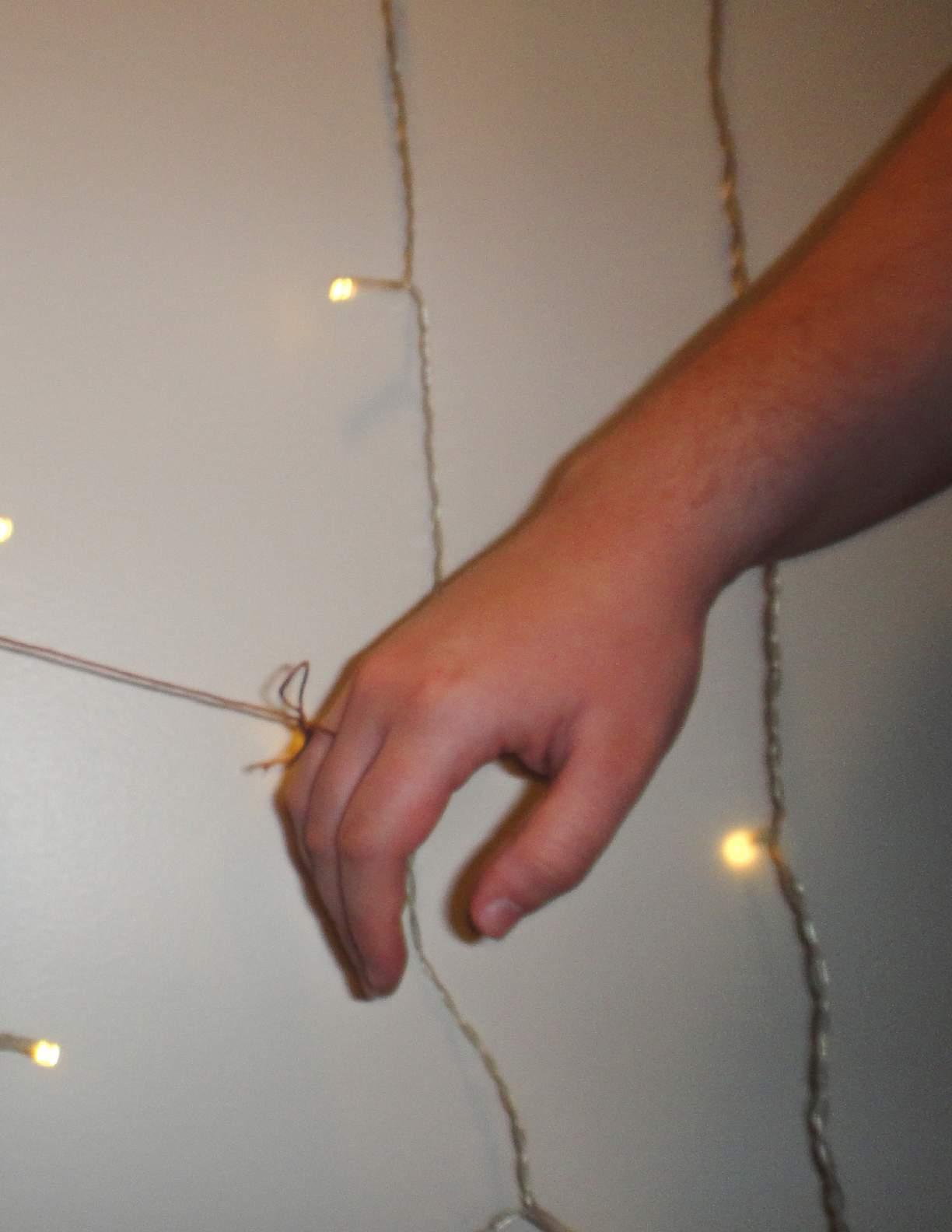
probably spent more time avoiding conflict than I did studying. But isn’t that what high school’s about? Growing pains and awkward conversations; constantly being told you’re too young while feeling like you’re outgrowing the people around you?
I probably won’t forget what it was like to be bullied in high school. It also doesn’t help to be abruptly reminded via my TikTok comments. But instead of obsessing over it, I remind myself that I got out. I made it to a big city, to a new school, with bright new opportunities ahead of me, all because I was brave enough to make a new life for myself, outside of high school. YM
living | 52

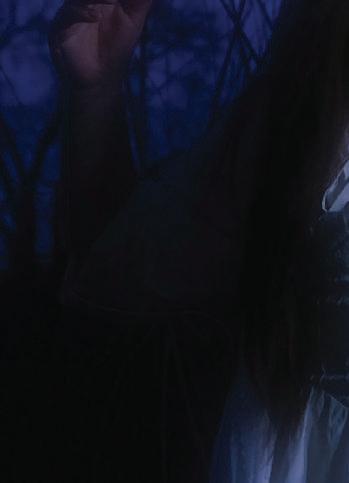
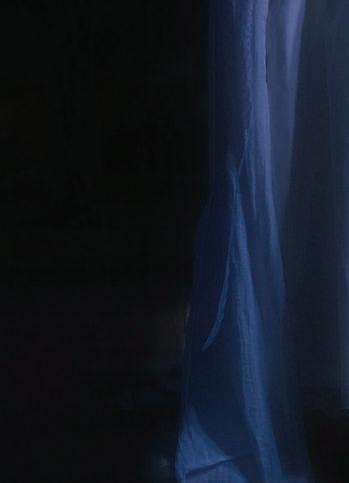



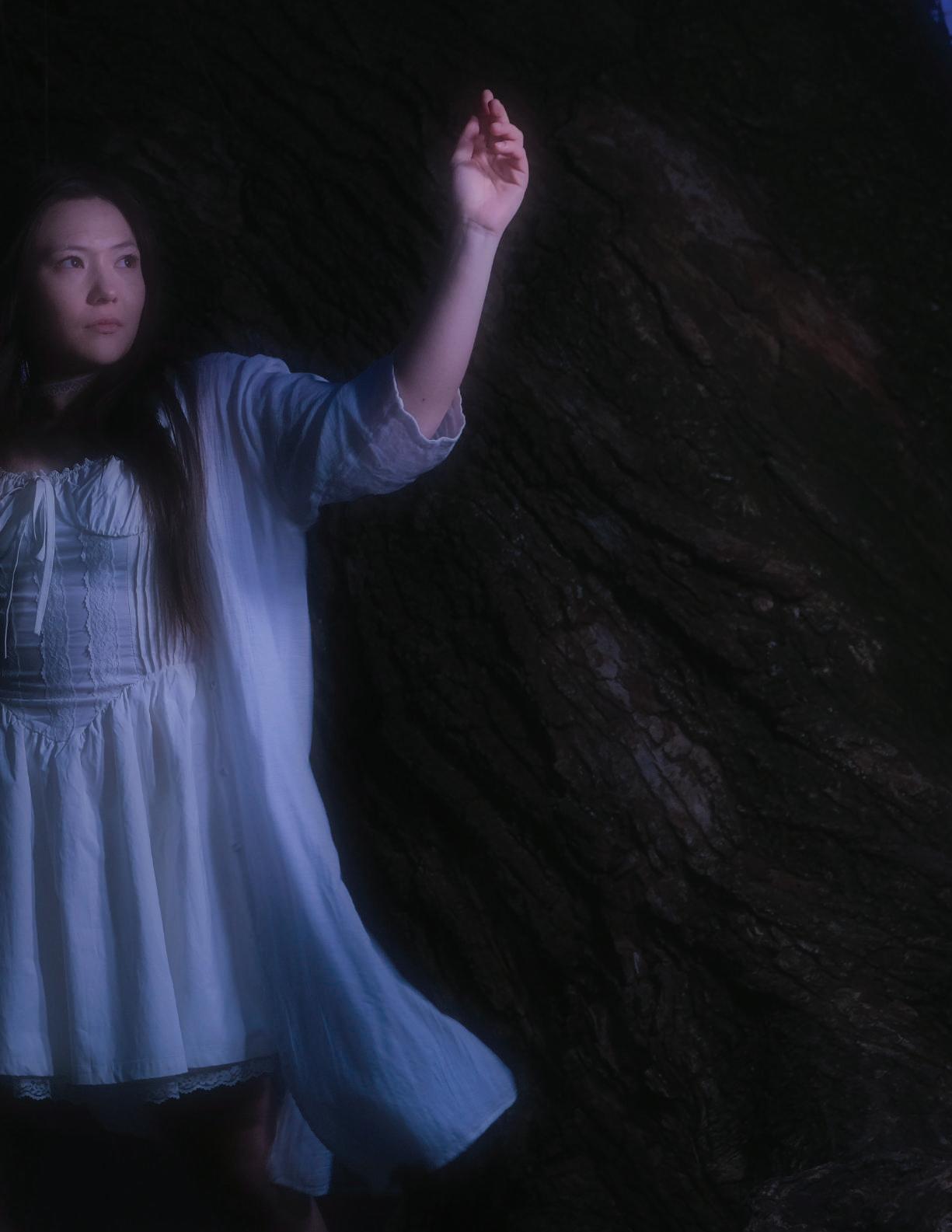




FOUND.




DIRECTED BY CARTER BARAL
PHOTOGRAPHED BY CARTER BARAL
STYLED BY JULIA MAGDZIAK
MODELED BY HOLIDAY JONES, SARA KELLEY, AND JESSICA ADAIR


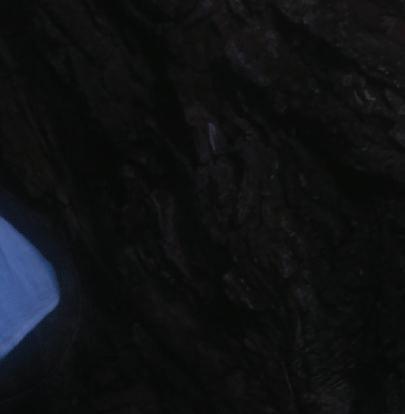

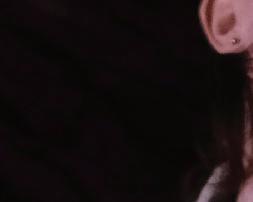
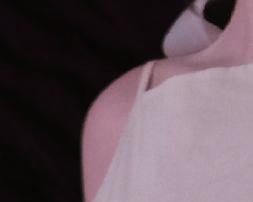
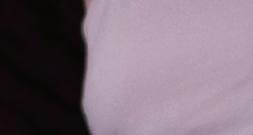

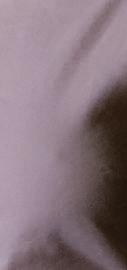









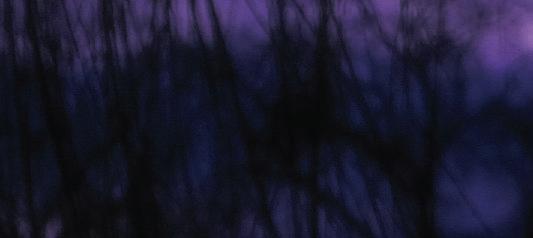
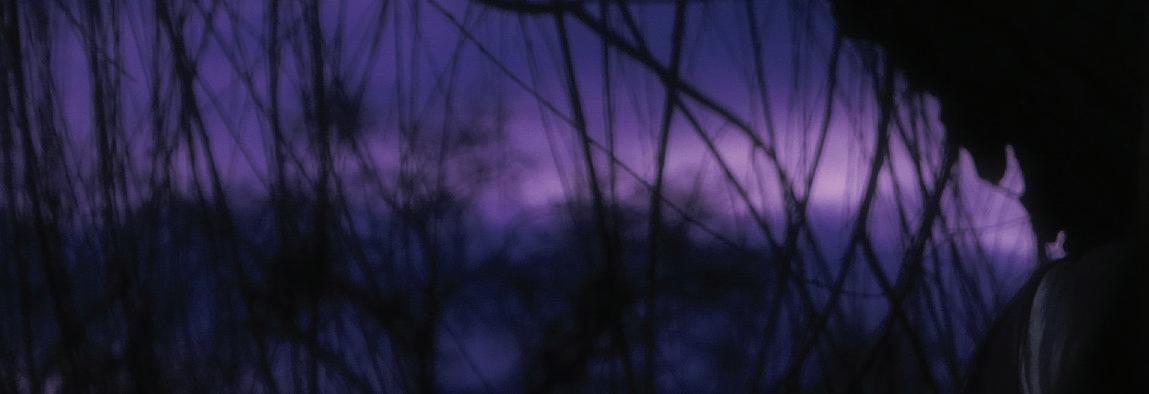

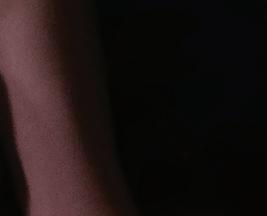





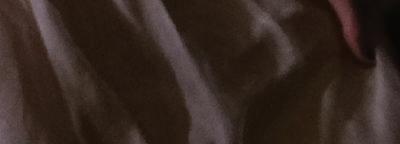







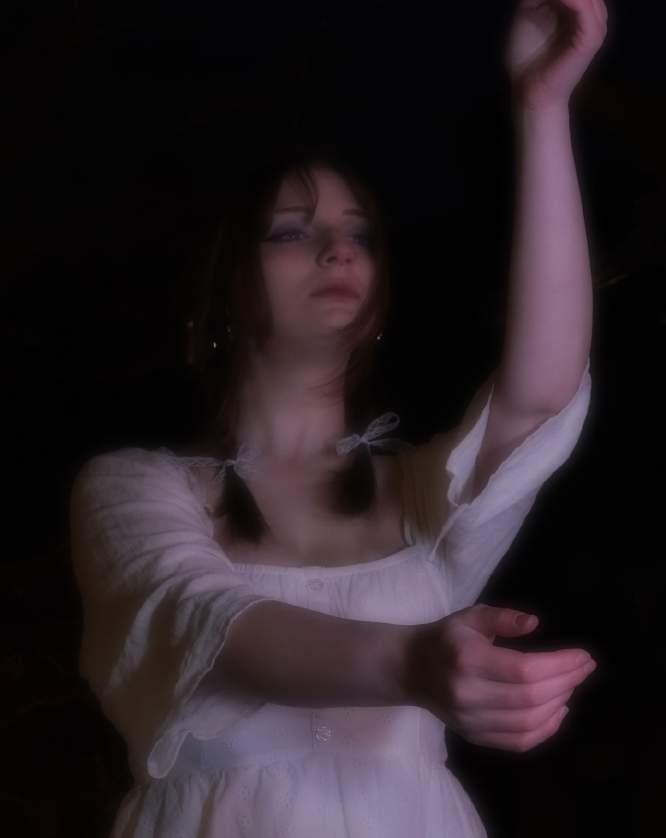




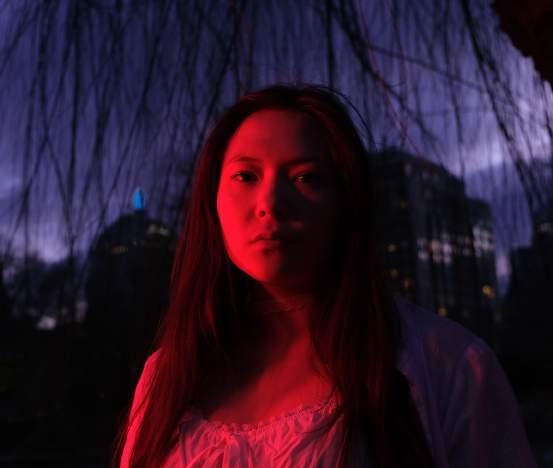




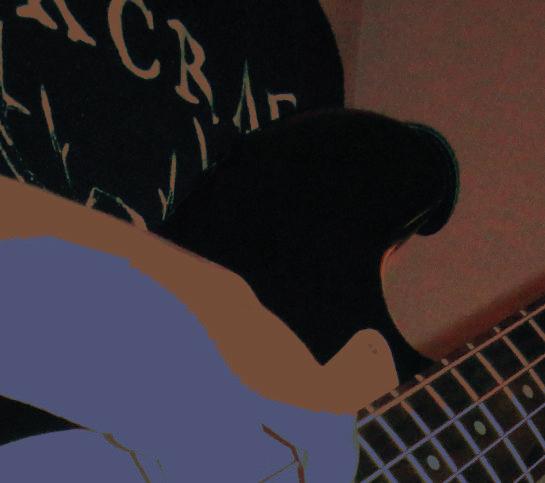





61 | arts & entertainment
What Do I Do Now?
Self-Doubt As a Musician Fresh Out of College
WRITTEN BY CAROLINE WHITE
Attention students in arts, performance, comedy, and all other things Emerson: If you are a 2024 graduate, I come bearing good news! Our hard work and studying to pursue an artistic career is, in fact, NOT a waste of time! My brother Aaron, a Trumpet Performance major at Arizona State University, and I have had many long conversations about the stress of devoting year after year to a rather inconsistent industry, and he was even considering dropping out of school at one point. Seeing my brother lose interest in his art made me question my place at Emerson College, my career choice, and my talents. As mostly arts and communications students, we know this uncertainty all too well. We spend entirely too much money at Emerson to be stressed about whether we will earn any of it back. In search of some comfort, I spoke with Hagan Varaguas ‘23, a recent graduate of Berklee College of Music. He shed light on his experience working as an artist in the two months since he graduated.
Truthfully, I went into this interview seeking some sympathy. I wanted him to be relatable and someone for us, as artists and creatives, to find comfort in. His optimism in and out of college blew me away. I admired how much he loved the arts and the creative process. Seeing the logistics of his work and making money was just as interesting.
“I had a professor, Susan Rogers, who was Prince’s record producer turned doctorate psycho-acoustician,” Varaguas says. “She encouraged me to take advantage of my youth and enjoy the arts and my passion for music while I’m still young and able.” Varaguas’ love for science and art and the knowledge that he could have something to fall back on in the future helped him to feel confident in the present and in the decision to continue to grow as an artist instead of
 PHOTOGRAPHED BY LAUREN MALLETT
PHOTOGRAPHED BY LAUREN MALLETT
dropping his career for something that was typical. He says, “That message really changed everything for me, and I decided to throw my all into the music industry. And then in my late 30s, early 40s, if I still have the inklings, I’ll go into science.” As an artist, this was incredibly encouraging. I guess I never thought of the future after pursuing an artistic career; I’ve thought of that as my only future. Some of us likely ended up at Emerson because someone told us we have a “gift” for creating whatever it is we create. It’s frankly a struggle to stay motivated enough to not doubt yourself and become great.
“I’ve definitely had self-doubt, but, at the end of the day, it doesn’t really matter. My role as an artist doesn’t have any potential to hurt people, it could only ever help people,” Varaguas says. Wow. Perhaps this hit me so hard because as artists—and maybe I’m just speaking for myself—self-doubt is often the nail in the coffin. How am I supposed to think I’m great when surrounded by greatness? Varaguas made me realize that even if I’m not great, my art is still a gift to society. What we, as artists, create imposes no harm to the world, so why would I be stupid enough not to share what I do with the world?
I ended this interview with the age-old question: “What do I do now?” I felt a sense of comfort knowing that my art was worth sharing, but how would I even go about doing that? Is it even worth it? Will I be searching all of my pants pockets for cash forever? “Consider why we’re in the industries we’re in and just put your all into it, and others will reciprocate that,” Varaguas says. This was like a hug made of words. I felt that as long as I do my part, the funds will come. I felt like now I knew what I should do: “Just be a fool. No one is going to die if you mess up.” YM

arts & entertainment | 62



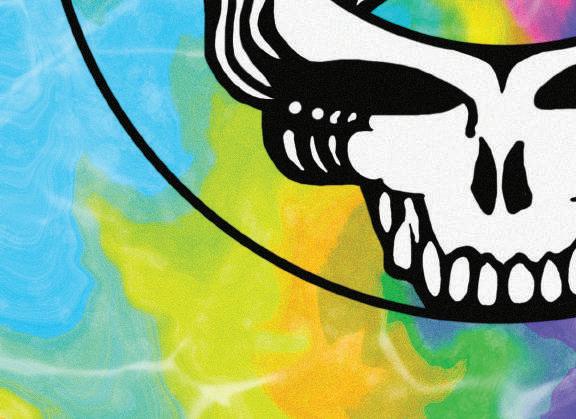





63 | arts & entertainment
WRITTEN BY LUCY LATORRE
ART BY CHRISTINA CASPER

Some people are taught about religion from a young age, sitting in uncomfortable church pews for hours each weekend, examining ancient pages of laminated books. It becomes an explicit part of their life, integrated into every aspect. Their home begins to feel that it is lined with the same stained glass they see on Sundays. My parents are not very religious. They follow a different set of moral codes, one composed in 1965, where the “body” is bud, the “blood” is wheat, and Jerry Garcia is practically God.
The Grateful Dead is long past its heyday, yet their music has withstood the tests of time. With each generation, the music, culture, and messages are passed down. The devotees call themselves “Deadheads,” and they spread joy to those who are willing to listen. “You just gotta poke around.” My parents are two of those who are willing. They are loyal followers, attending as many concerts as they can, bonding with other members of the community, and passing on this music to me.
My entire childhood was surrounded by the Grateful Dead. I used to be embarrassed by it, sort of resenting this passion that had been pushed onto me. During every single car ride, the Grateful Dead station would be blaring from the speakers, preaching to us on our way to the supermarket. A human being can only stomach so much tie-dye. Our house has slowly become a shrine: multicolored dancing bears, skulls busted with a bolt of lightning, records I’ve bought my parents for Christmas, and shirts they’ve bought for me. All in one house, a cross-contamination of generations connected by music. At one concert, my mother purchased the ugliest pair of faded, patched up yoga pants I’d ever seen. She wears them with pride because it connects her to the music. It makes me hate them a little less. “Sometimes we live in no particular way than our own.”
Since leaving the makeshift museum that I called home for 18 years, I’ve officially outgrown my distaste. If anything, I’m a fellow fan. After 20 years of listening, I have learned there’s something about a Grateful Dead song that makes it easy to identify. Maybe it’s the rippling groove of the guitar or the rhythmic bumping of the bass drum, but somewhere in my soul I know it’s them. “It’s a rainbow full of sound.” The songs seem to blend into each other like a constant stream that will never be broken, even after six years. It becomes a sort of embedded connection, each note bleeding into the next yet radically distinct. It’s completely chaotic. It’s incredibly peaceful. The lyrics became a playbook for my day-to-day activities, flowing out of the music and into my vocabulary. How can I help it?

That’s what I’ve been taught. “If you’re confused, listen to the music play.” Since being away from home, I find myself dipping into this motto more and more.
There’s overwhelming joy in independence, yet a pain I’ve never quite felt before. My mother always says that it takes a village. To do what, it doesn’t particularly matter. Just, anything. “Trouble with you is trouble with me.” There is no village quite like the Deadheads. I’ve come to recognize people are a part of the village from little things. The same icons that grace my home appear in theirs too. I always feel a strange sense of comfort in these situations. Seeing others who appreciate the music like my parents do makes me feel connected to them from miles away. It feels like being reunited with a relative, but the only blood that bonds us is music. Our family tree spans continents. “Every silver lining has a touch of gray.”
I’m rounding the corner of the stage of life where my parents connected. Snowed in at St. Bonaventure University, they were young, college-aged, working on their essays and looking forward to the next boozy weekend. They were like me. My friends. The people I see on campus. “Strangers stopping strangers just to shake their hand.” Surrounded by opportunity, choice, and confusion. I find great comfort in the mental image of them decompressing to the same songs they still do, laying on a big quilted blanket in the quad with their friends, smoking a joint, and repeating the same phrases they say to me as I’m now in their shoes. Since I’ve sat and imagined them like this, I’ve never felt more connected to them in my entire life.
It warps my mind that I’m no longer a child learning the words of the Lord. I’m a preacher. “Something new is waiting to be born.” My parents, at my age, saw the beauty in the Grateful Dead and decided to instill the messages they learned into me through a flow of music that plays in our heads like calming white noise. Some day, I’ll have children of my own. They may resent the music as I did at their age, but they’ll come back around. I’ll teach them the words my parents taught me. They’ll hear the music and be transported to a car seat, a jam session ringing through the radio, their small feet kicking the seat in front of them. They’ll be the child, me the parent, and I will be the one to teach them the things my parents taught me. It will be us, all of us, singing “Thank you for a real good time.” YM
arts & entertainment | 64

65 | arts & entertainment
Is it Stage Magic, or is it Real?
WRITTEN BY SKY HERMANSON ART BY ALEKS CARNEY
Watching a live theater performance can be emotional, intense, entertaining, and devastating. There’s something about the medium that hooks audiences, keeps them on the edge of their seats, and compels them to return to the theater for show after show. There’s some powerful thread that connects every individual member of the audience, the actors on stage, and the crew that creates the show. For the time that everyone is in a theater, the outside world, the ‘real’ world, is forgotten. The world of the show takes over. It nears magic. Brian Stokes Mitchell, a Tony Award-winning Broadway actor, once said that theater “has the power to transform an audience, an individual, or en masse, to transform them and give them an epiphanic experience that changes their life, opens their hearts and their minds and the way they think.”
I grew up doing a lot of acting in ensembles and bit roles in very small theatre groups, an experience that I share with a lot of theater-makers. I haven’t been on stage performing in at least five years, and I took a lengthy break from theatre during high school. I ended up at college as a writing major, with a plan to become a screenwriter. I made it a semester before I found myself being drawn back to theatre. Now, I work on as many shows as possible (four so far this semester) and engage with theatre wherever I can. I admit, I’ve had my fair share of negative moments during rehearsal processes when shows didn’t go the way I hoped, or the work weighed on my mental health, but I always return. I see many of my friends and peers continuing to work on shows despite their occasional negative experiences as well. So what is it about theatre that we find so irresistible?
Theatre is unique because of its intense community and social aspect, which I personally adore. There’s just something about being in a physical space with a group of incredibly passionate people who are putting all of themselves into one project. The collective concentration creates a powerful energy. I recently had a conversation with Abby Lee (she/her), a student at Emerson who acts, directs and is intending to become a theater teacher. She
shared that she has made long-lasting friendships through theatre because she and another individual were putting 100 percent of their time, energy, and love into a show, which is something she says can’t be found in many other places. She also spoke on how that feeling extends to the audience. While she was watching “The Wild Party,” put on by Musical Theatre Against the Grain, she said that she could feel the blood, sweat, and tears the entire cast and crew put into that show. Because no one in the cast left the stage, except for a couple of scenes at the start, the audience could see their stamina and skill coupled with the award-winning choreography that showcased their dancing talent. Toward the end of our conversation, she said that she considered theatre to be a space for people who need an outlet for communicating. Theatre is so special because of its ability to uplift and draw out voices.
In early February, I got the opportunity to see The 7 Fingers show Dual Reality at the Cutler Majestic Theatre. I watched the show from onstage seating, which made my experience especially unique and wonderful. This meant that the performers directly interacted with me and performed feet (and, at times, inches) away from my seat. As audience members, we were encouraged to cheer, yell, and interact back with the dancers. I could feel my attention held for the entire 60-minute show. I forgot I was even onstage in a theater. This is something that I have never experienced in a movie theater, or watching a show in my own home. My human nature is compelled so much more by theatre.
In my opinion, the most magical part of any theatre production is the final bows. If I know anyone in the cast, I will, without fail, cry every time I watch the bows. If I worked on the show, it’s likely that would turn into weeping. I am overwhelmed by the joy that comes from finishing a show and finally getting to put your hard work on display. It is comparable to the emotions that happen after an adrenaline rush. The world that has fully immersed me for hours finally falls apart, and I am forced back into reality, yet I am thankful and changed by the show. YM
arts & entertainment | 66







YMP3












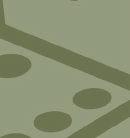








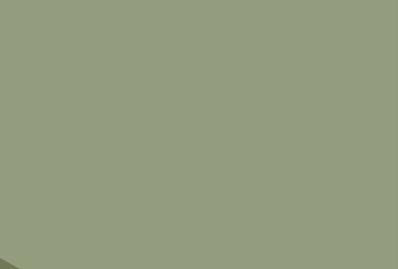





67 | YMP3

























































YMP3 | 68
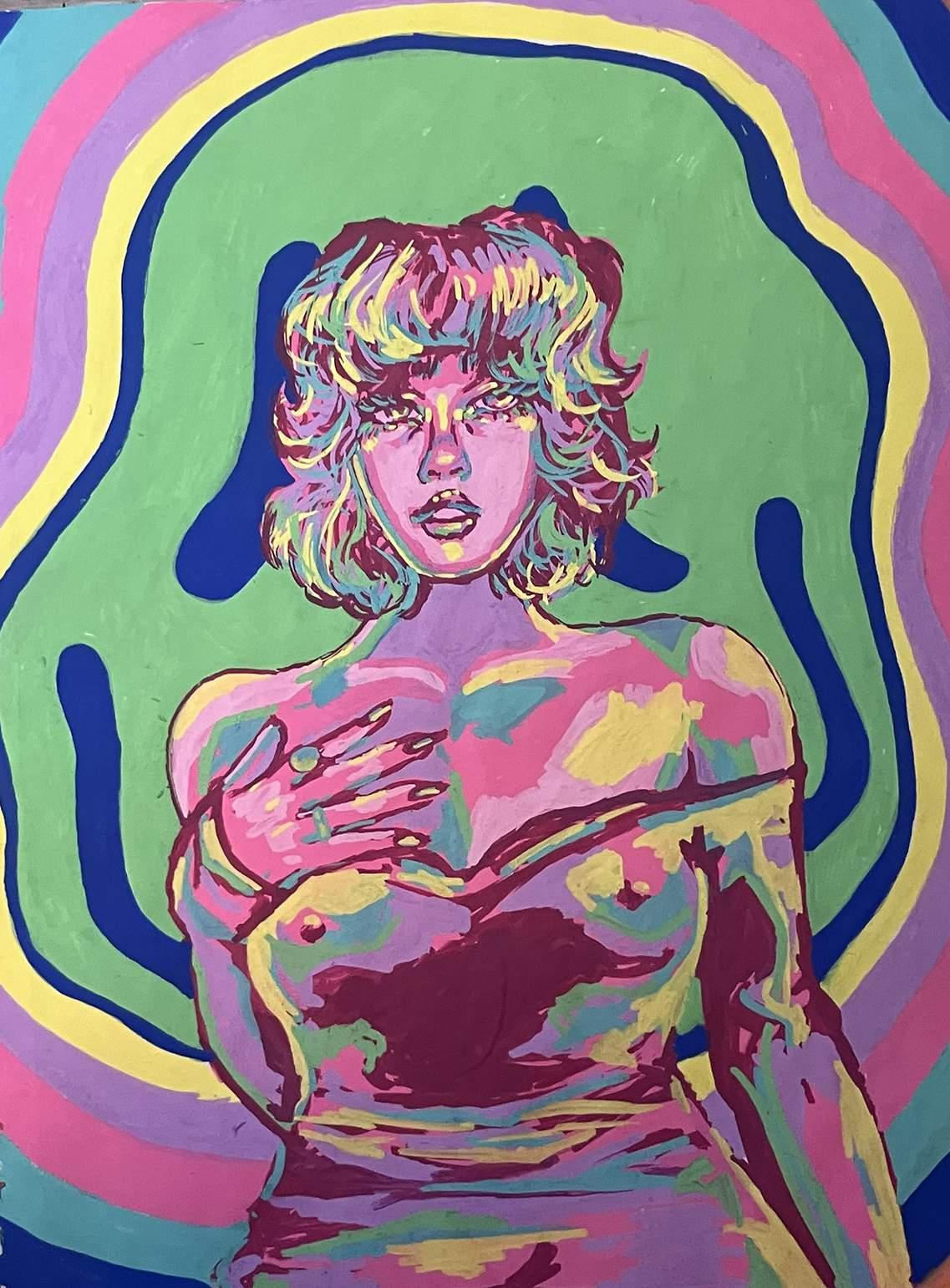
69 | artist statement


ARTIST STATEMENT VENUS YAMAMOT0


statement | 70
artist

Describe your work in one sentence.
A whim-driven exploration of the hidden colors, magic, and experiences of the world.
How and when did you get into art?
I actually come from a family of artists on my mother’s side, but it wasn’t until fifth grade where I knew that art was going to be an essential part of who I was. We were assigned these National Geographic photos that we were supposed to copy as realistically as possible and then display at the end of the year. I had never really taken the class that seriously until I got my hawk. I don’t know what it was, but I felt this tug in me that made me spend hours laboring over getting every little claw and feather right. It was the first time I’d ever feel truly proud of a drawing I made, and I didn’t want it to be the last.
What inspires you?
What doesn’t inspire me? I’m obsessed with color, and I’m constantly on the lookout for interesting-looking faces or poses in the world. Sometimes that’s real people or physical things, and sometimes it’s stuff like other people’s art or music. One of my pieces was inspired by a table and a desk chair I saw. At the end of the day, all that matters is that it gives me that itch.
Why painting?
Honestly, there’s nothing really like it. I do stuff like music and writing too, but there’s something about the tactile and physical nature of art that always reminds me that I’m real, alive, and capable of enacting change. It’s almost empowering. Like the best kind of magic.
Who are some of your favorite creators/artists?
One of the first creators to ever inspire me to draw was Peter Deligdisch or Peter Draws on YouTube. But in more recent years I’ve also got to call out Savanna Judd (@heartslob), Syd Mills (@vetyr), and John Larriva.

VENUS YAMAMOT0 71 | artist statement
ARTIST STATEMENT
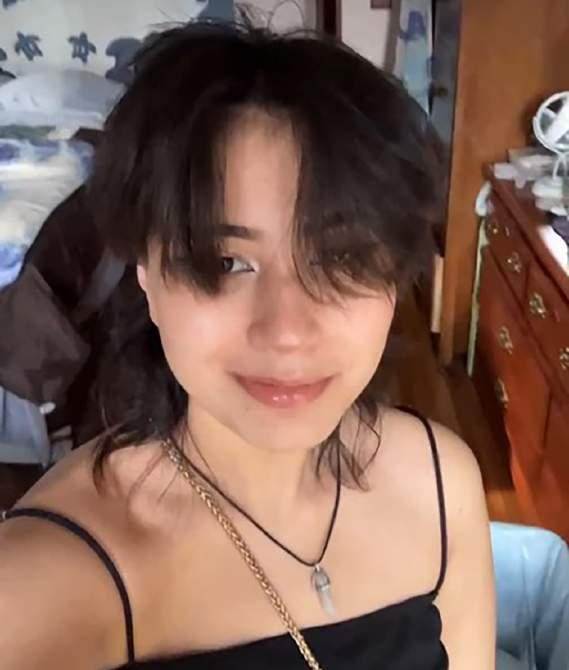

What is one of your favorite pieces you’ve made? What makes it special to you?
My favorite piece is probably my puzzle face piece. I made that piece during one of the first all-time lows of my life when I could barely get the energy to get out of bed most days. But out of nowhere, I ended up having this fervent need to make this piece, and now to this day, it’s one of the only pieces I’ve remained proud of.
What advice would you give other/new creators?
Your best piece is the one you want to make. If you’re not enjoying the process of physically making the art, you’ve got to ask yourself who you’re really making this for. I feel like I wasted way too much time doing nothing, because I was preoccupied with what I thought my art should look like. If it makes you happy and keeps you making art, then pursue it.
Where do you see yourself in 10 years?
I have astigmatism I can barely see in front of me, but hopefully making the art that makes me happy.
Where can readers see more of your work?
When I bother to post I’m @cherry.trixster on social media, but you can always just ask me in person to see something from the last three years. I don’t bite.
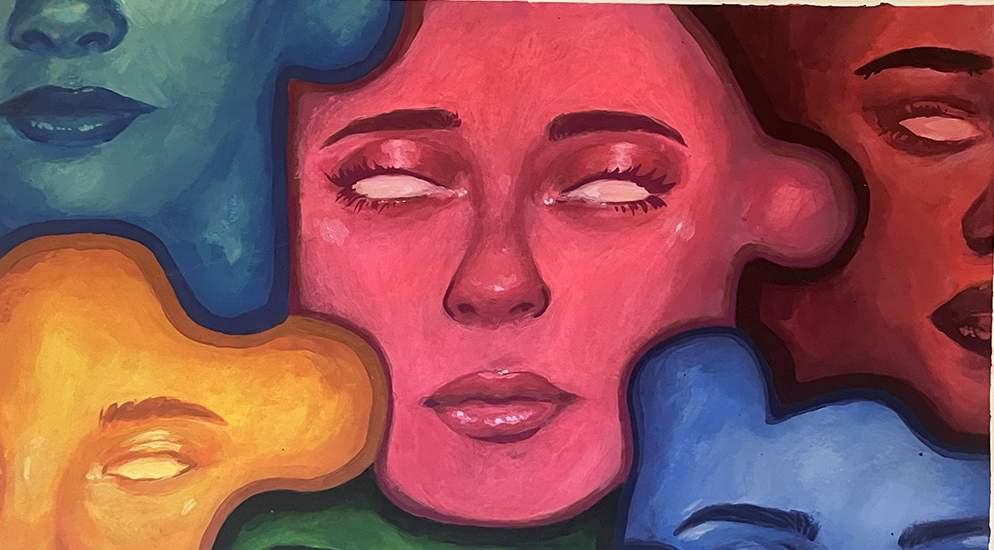
artist statement | 72
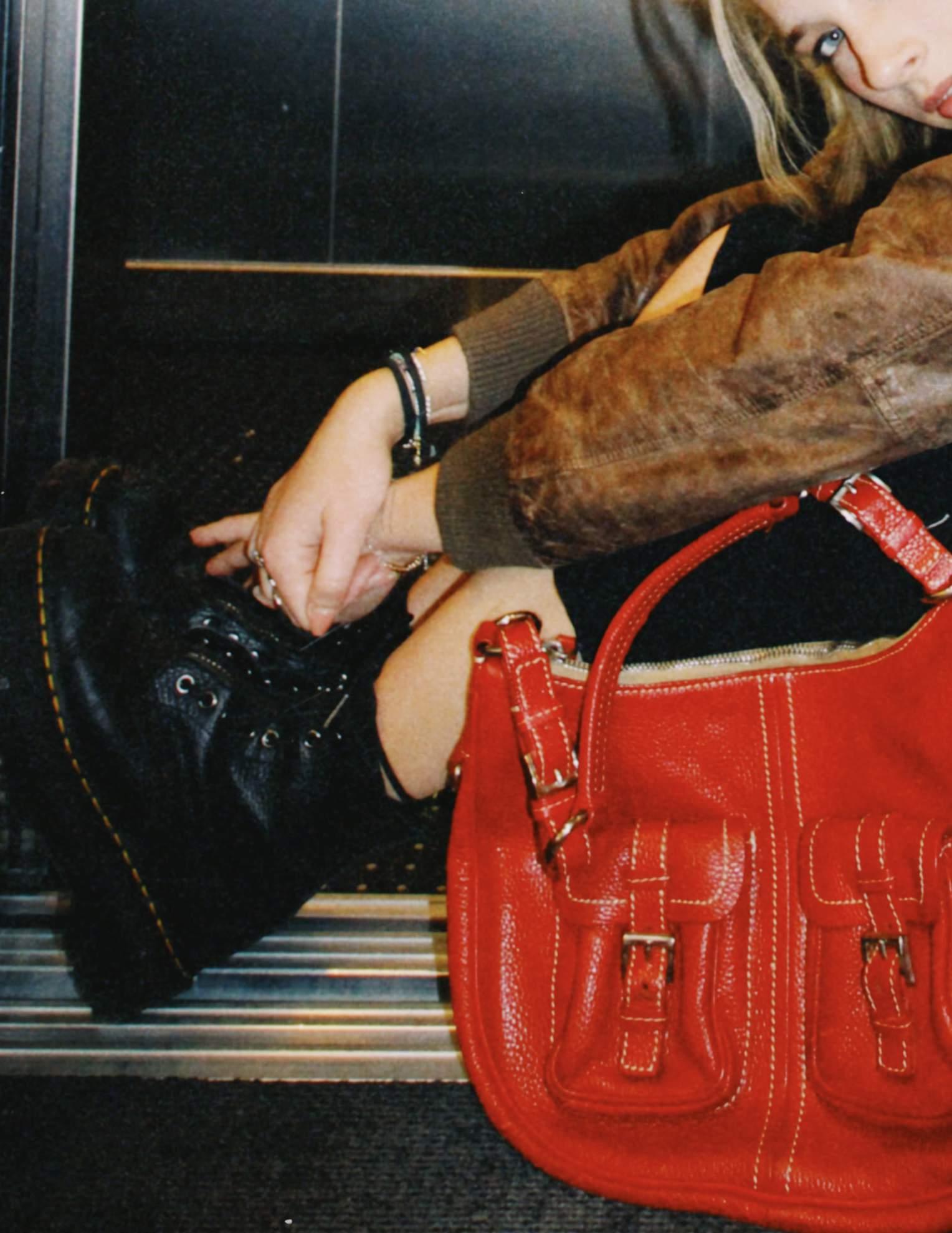





































 Elise Guzman xoxo
Elise Guzman xoxo


























































 PHOTOGRAPHED BY HAILEY KROLL
PHOTOGRAPHED BY HAILEY KROLL


















































































































 WRITTEN BY CHARLOTTE BRANDMAN PHOTOGRAPHED BY LAUREN MALLETT
WRITTEN BY CHARLOTTE BRANDMAN PHOTOGRAPHED BY LAUREN MALLETT




































































 PHOTOGRAPHED BY LAUREN MALLETT
PHOTOGRAPHED BY LAUREN MALLETT



































































































